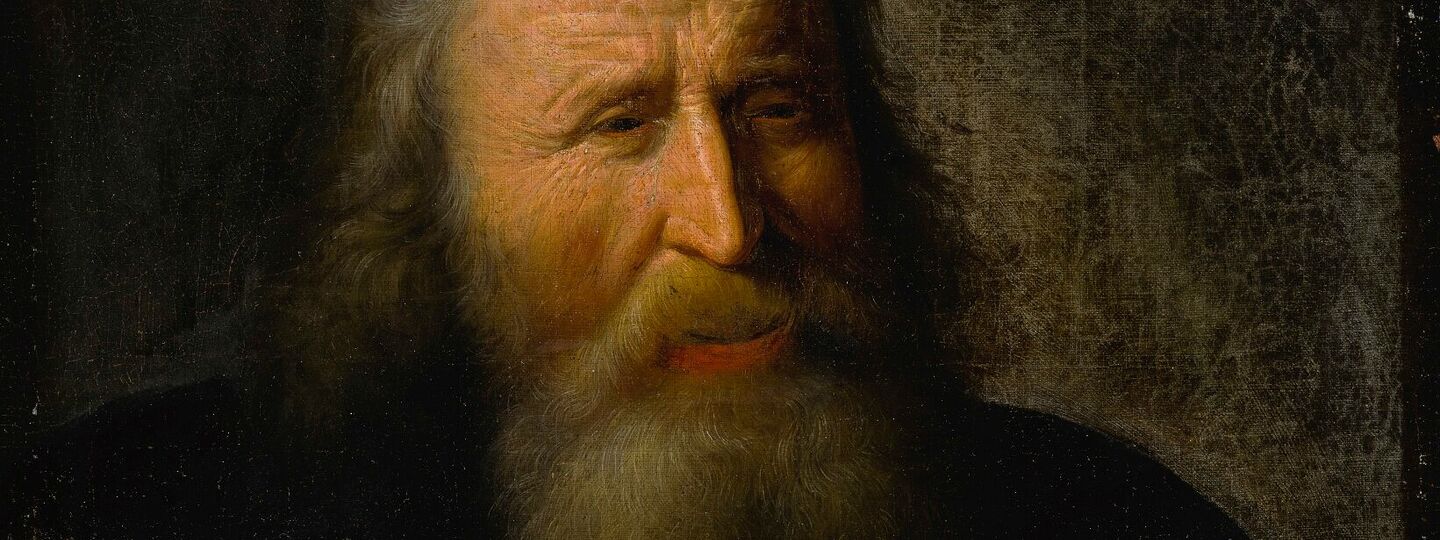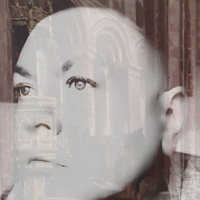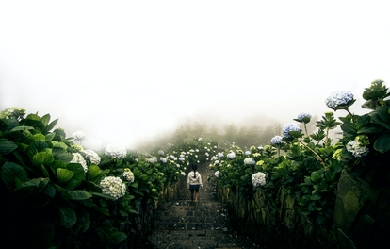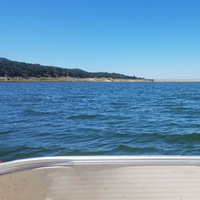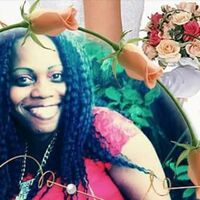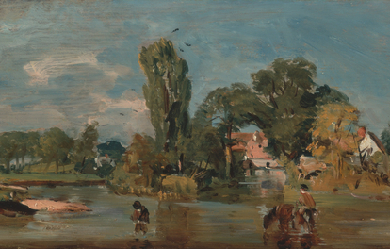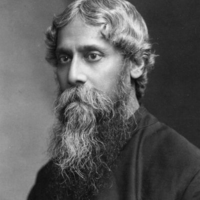
Rabindranath Tagoreα (7 May 1861 – 7 August 1941) was an Indian Bengali polymath who reshaped his region’s literature and music. Author of Gitanjali and its “profoundly sensitive, fresh and beautiful verse”, he became the first non-European to win the Nobel Prize in Literature in 1913. In translation his poetry was viewed as spiritual and mercurial; his seemingly mesmeric personality, flowing hair, and other-worldly dress earned him a prophet-like reputation in the West. His “elegant prose and magical poetry” remain largely unknown outside Bengal.
#IndianWriters #NobelPrize #XIXCentury #XXCentury
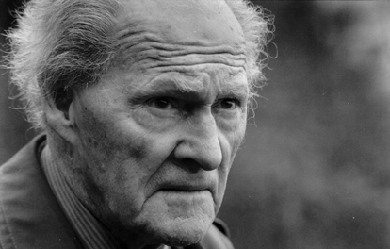
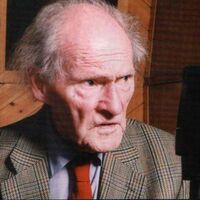
Ronald Stuart Thomas (29 March 1913 – 25 September 2000), published as R. S. Thomas, was a Welsh poet and Anglican priest who was noted for his nationalism, spirituality and deep dislike of the anglicisation of Wales. In 1955, John Betjeman, in his introduction to the first collection of Thomas’s poetry to be produced by a major publisher, Song at the Year's Turning, predicted that Thomas would be remembered long after Betjeman himself was forgotten. M. Wynn Thomas said: “He was the Aleksandr Solzhenitsyn of Wales because he was such a troubler of the Welsh conscience. He was one of the major English language and European poets of the 20th century.”

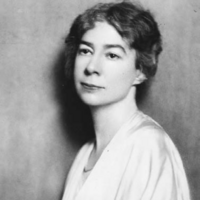
Sara Teasdale (August 8, 1884 – January 29, 1933) was an American lyric poet. She was born Sarah Trevor Teasdale in St. Louis, Missouri, and used the name Sara Teasdale Filsinger after her marriage in 1914. She had such poor health for so much of her childhood, home schooled until age 9, that it was only at age 10 that she was well enough to begin school. She started at Mary Institute in 1898, but switched to Hosmer Hall in 1899, graduating in 1903. I Shall Not Care WHEN I am dead and over me bright April Shakes out her rain-drenched hair, Tho' you should lean above me broken-hearted, I shall not care. I shall have peace, as leafy trees are peaceful When rain bends down the bough, And I shall be more silent and cold-hearted Than you are now.
#Americans #PulitzerPrize #Suicide #Women #XXCentury

Dear my followers...I'm going to be taking this page down shortly. I'm sorry but I can't keep up with it and to help ease some of the stress I have I can't keep it up. Thank you for everything though. Feel free to email me and keep writing, remember you all are beautiful and talented. Don't let this world get you down. Farewell my friends, For the last, XoxoTay.
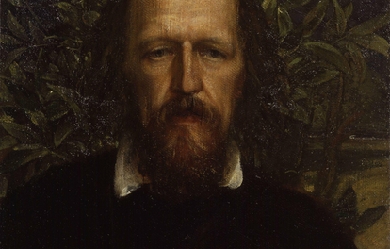
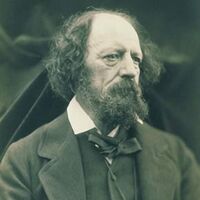
Alfred Tennyson, 1st Baron Tennyson, FRS (6 August 1809 – 6 October 1892) was Poet Laureate of the United Kingdom during much of Queen Victoria's reign and remains one of the most popular poets in the English language. A number of phrases from Tennyson’s work have become commonplaces of the English language, including “Nature, red in tooth and claw”, “'Tis better to have loved and lost / Than never to have loved at all”, “Theirs not to reason why, / Theirs but to do and die”, “My strength is as the strength of ten, / Because my heart is pure”, “Knowledge comes, but Wisdom lingers”, and “The old order changeth, yielding place to new”. He is the ninth most frequently quoted writer in The Oxford Dictionary of Quotations.
#English #Victorians #XIXCentury

I have never truly fit in with my peers. In early grade school, I had a good amount of friends my age, but by the third grade I was reading at least five grade levels above them, and had discovered my love of the written word. I immersed myself in literature as my peers immersed themselves in pop culture. My friends grew closer to each other, as I delved into my own world. A world of fiction and fantasy. As the girls fell in love with the boys, I fell in love with my favorite characters. My vocabulary expanded to the point where large, polysyllabic words were part of my normal speech, and I had to repeat and tailor my sentences to speak to my peers. This trouble communicating pushed me further from my friends and closer to my books. I chose to live my life between the pages. It was only a matter of time, I suppose, before I discovered what reading had given me. I had developed a command over the written word which I could use to create my own stories. I could share my own thoughts efficiently and creatively, and I could make it sound beautiful with the ways I could craft the syllables to my whims. Words became better friends to me than humans. Over time I have discovered myself as a writer and poet. However, I have not lost my interpersonal relationships. I have been in love, I have been hurt, I have learned to interact with my peers, and I have had the experience one receives in high school. I have taken my experiences, both real and read about, and told them with words. I have learned from life and literature, and developed a depth of maturity that separates me from my closest friends. They come to me for advice because I have an understanding of issues that has proved helpful to them, in the rare situation that they actually enact it. However, when it comes down to it, the superficiality of my fellow high school girls pushes me away. I have tried and failed to open up to my peers and have effectively, though rather unfortunately, created a vast distance between them and I. Now here I am, unable to connect with my peers on a satisfactory level, and I feel a deep loneliness despite however many people surround me at any time. I have, to my dismay, dug my own hole, -- the nature of this hole I am still unsure of, could it be my own grave, I don't know -- but I have opened up a bottle of hurt and placed myself in a crippling depression. My own ignorance has been my ruin. I put myself on a plain above my level, and when I finally came down, I came crashing down only to find that I had pushed myself too far away. I have friends whose sincerity I am irrevocably unconvinced, and I have my own thoughts. Thoughts full of pain and resentment. I used to, desperately, blame others for it, too. I blamed my peers for not being on my level, and even my doctors for treating the ADD which could have kept me back from becoming too knowledgable. However, now I see that I am alone because I put myself in solitary. It is as regrettable as the physical scars which I have made on my wrist and gut: the emotional scar I have carved in my own heart. PS: I have a bit of an affinity to Willow Trees...
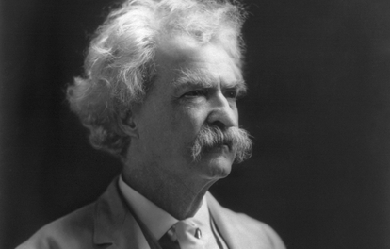

Samuel Langhorne Clemens (November 30, 1835– April 21, 1910), better known by his pen name Mark Twain, was an American writer, humorist, entrepreneur, publisher, and lecturer. Among his novels are The Adventures of Tom Sawyer (1876) and its sequel, the Adventures of Huckleberry Finn (1885), the latter often called “The Great American Novel”.
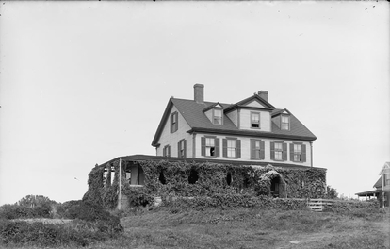
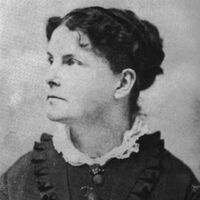
Celia Laighton Thaxter (June 29, 1835 – August 25, 1894) was an American writer of poetry and stories. She was born in Portsmouth, New Hampshire. Thaxter grew up in the Isles of Shoals, first on White Island, where her father, Thomas Laighton, was a lighthouse keeper, and then on Smuttynose and Appledore Islands. When she was sixteen, she married Levi Thaxter and moved to the mainland, residing first in Watertown, Massachusetts at a property his father owned. Celia died suddenly while on Appledore Island. She was buried not far from her cottage, which unfortunately burned in the 1914 fire that destroyed The Appledore House hotel.
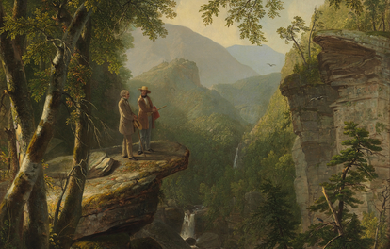
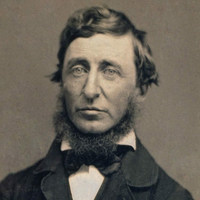
Henry David Thoreau (July 12, 1817– May 6, 1862) was an American author, poet, philosopher, abolitionist, naturalist, tax resister, development critic, surveyor, and historian. A leading transcendentalist, Thoreau is best known for his book Walden, a reflection upon simple living in natural surroundings, and his essay Resistance to Civil Government (also known as Civil Disobedience), an argument for disobedience to an unjust state. He was a lifelong abolitionist, delivering lectures that attacked the Fugitive Slave Law while praising the writings of Wendell Phillips and defending abolitionist John Brown. Thoreau’s philosophy of civil disobedience later influenced the political thoughts and actions of such notable figures as Leo Tolstoy, Mahatma Gandhi, and Martin Luther King, Jr.

My name is Kailey Nicolaou (Titanium-Heart), my friends call me Kailz or Elly. My work is about my life struggles that have occurred and about faith, hope, depression etc. I have been writing poems, novels and songs since I was young to express my feelings, darkest and lightest thoughts. A lot of my poems are about my daughter Summer Rose Nicolaou who died on 18th December 2008, this was one of my darkest times that I have ever had. I do not speak to many people about my issues, so poetry is my release. I truly hope you enjoy my poetry and follow me for more of my poems, if you do follow me, I will defiantly take the time to look at your work and follow your page as well. Thank you.
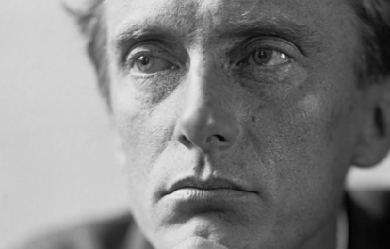
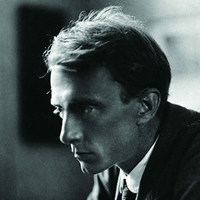
Philip Edward Thomas (3 March 1878– 9 April 1917) was a British poet, essayist, and novelist. He is commonly considered a war poet, although few of his poems deal directly with his war experiences, and his career in poetry only came after he had already been a successful writer and literary critic. In 1915, he enlisted in the British Army to fight in the First World War and was killed in action during the Battle of Arras in 1917, soon after he arrived in France. Life and career Early life Thomas was born in Lambeth, London. He was educated at Battersea Grammar School, St Paul’s School in London and Lincoln College, Oxford. His family were mostly Welsh. In June 1899 he married Helen Berenice Noble (1878-1967), in Fulham, while still an undergraduate, and determined to live his life by the pen. He then worked as a book reviewer, reviewing up to 15 books every week. He was already a seasoned writer by the outbreak of war, having published widely as a literary critic and biographer as well writing on the countryside. He also wrote a novel, The Happy-Go-Lucky Morgans (1913), a “book of delightful disorder”. Thomas worked as literary critic for the Daily Chronicle in London and became a close friend of Welsh tramp poet W. H. Davies, whose career he almost single-handedly developed. From 1905, Thomas lived with his wife Helen and their family at Elses Farm near Sevenoaks, Kent. He rented to Davies a tiny cottage nearby, and nurtured his writing as best he could. On one occasion, Thomas even had to arrange for the manufacture, by a local wheelwright, of a makeshift wooden leg for Davies. Even though Thomas thought that poetry was the highest form of literature and regularly reviewed it, he only became a poet himself at the end of 1914 when living at Steep, East Hampshire, and initially published his poetry under the name Edward Eastaway. Frost in particular encouraged Thomas (then more famous as a critic) to write poetry, and their friendship was so close that the two planned to reside side by side in the United States. By August 1914, the village of Dymock in Gloucestershire had become the residence of a number of literary figures, including Lascelles Abercrombie, Wilfrid Gibson and American poet Robert Frost. Edward Thomas was a visitor at this time. Thomas immortalised the (now-abandoned) railway station at Adlestrop in a poem of that name after his train made a stop at the Cotswolds station on 24 June 1914, shortly before the outbreak of the First World War. War service Thomas enlisted in the Artists Rifles in July 1915, despite being a mature married man who could have avoided enlisting. He was unintentionally influenced in this decision by his friend Frost, who had returned to the U.S. but sent Thomas an advance copy of “The Road Not Taken”. The poem was intended by Frost as a gentle mocking of indecision, particularly the indecision that Thomas had shown on their many walks together; however, most audiences took the poem more seriously than Frost intended, and Thomas similarly took it seriously and personally, and it provided the last straw in Thomas’ decision to enlist. Thomas was promoted corporal, and in November 1916 was commissioned into the Royal Garrison Artillery as a second lieutenant. He was killed in action soon after he arrived in France at Arras on Easter Monday, 9 April 1917. To spare the feelings of his widow Helen, she was told the fiction of a “bloodless death” i.e. that Thomas was killed by the concussive blast wave of one of the last shells fired as he stood to light his pipe and that there was no mark on his body. However, a letter from his commanding officer Franklin Lushington written in 1936 (and discovered many years later in an American archive) states that in reality the cause of Thomas’ death was due to being “shot clean through the chest”. W. H. Davies was devastated by the death and his commemorative poem “Killed In Action (Edward Thomas)” was included in Davies’s 1918 collection “Raptures”. Thomas is buried in the Commonwealth War Graves Cemetery at Agny in France (Row C, Grave 43). Personal life Thomas was survived by his wife, Helen, their son Merfyn and their two daughters Bronwen and Myfanwy. After the war, Thomas’s widow, Helen, wrote about her courtship and early married life with Edward in the autobiography As it Was (1926); later she added a second volume, World Without End (1931). Myfanwy later said that the books had been written by her mother as a form of therapy to help lift herself from the deep depression into which she had fallen following Thomas’s death. Helen’s short memoir My Memory of W. H. Davies was published in 1973, after her own death. In 1988, Helen’s writings were gathered into a book published under the title Under Storm’s Wing, which included As It Was and World Without End as well as a selection of other short works by Helen and her daughter Myfanwy and six letters sent by Robert Frost to her husband. Commemorations Thomas is commemorated in Poets’ Corner, Westminster Abbey, London, by memorial windows in the churches at Steep and at Eastbury in Berkshire and with a blue plaque at 14 Lansdowne Gardens in Stockwell, south London, where he was born. There is also a plaque dedicated to him at 113 Cowley Road, Oxford, where he lodged before entering Lincoln College. East Hampshire District Council have created a “literary walk” at Shoulder of Mutton Hill in Steep dedicated to Thomas, which includes a memorial stone erected in 1935. The inscription includes the final line from one of his essays: “And I rose up and knew I was tired and I continued my journey.” As “Philip Edward Thomas poet-soldier” he is commemorated, alongside "Reginald Townsend Thomas actor-soldier died 1918", who is buried at the spot, and other family members, at the North East Surrey (Old Battersea) Cemetery. He is the subject of the biographical play The Dark Earth and the Light Sky by Nick Dear, which premiered at the Almeida Theatre, London in November 2012, with Pip Carter as Thomas and Hattie Morahan as his wife Helen. In February 2013 his poem “Words” was chosen as the poem of the week by Carol Rumens in The Guardian Poetry Thomas’s poems are noted for their attention to the English countryside and a certain colloquial style. The short poem In Memoriam exemplifies how his poetry blends the themes of war and the countryside. On 11 November 1985, Thomas was among 16 Great War poets commemorated on a slate stone unveiled in Westminster Abbey’s Poet’s Corner. The inscription, written by fellow poet Wilfred Owen, reads: “My subject is War, and the pity of War. The Poetry is in the pity.” Thomas was described by British Poet Laureate Ted Hughes as “the father of us all.” At least nineteen of his poems were set to music by the Gloucester composer Ivor Gurney. Selected works Poetry collections * Six Poems (under pseudonym Edward Eastaway) Pear Tree Press, 1916. * Poems, Holt, 1917, which included “The Sign-Post” * Last Poems, Selwyn & Blount, 1918. * Collected Poems, Selwyn & Blount, 1920. * Two Poems, Ingpen & Grant, 1927. * The Poems of Edward Thomas, ed. R. George Thomas, Oxford University Press, 1978. * Edward Thomas: A Mirror of England, ed. Elaine Wilson, Paul & Co., 1985. * Edward Thomas: Selected Poems, ed. Ian Hamilton, Bloomsbury, 1995. * The Poems of Edward Thomas, ed. Peter Sacks, Handsel Books, 2003. * The Annotated Collected Poems, ed. Edna Longley, Bloodaxe Books, 2008. Prose fiction * The Happy-Go-Lucky Morgans (novel), Duckworth, 1913. Prose * In Pursuit of Spring (travel) Thomas Nelson and Sons, April 1914 Essays and collections * Horae Solitariae, Dutton, 1902. * Oxford, A & C Black, 1903. * Beautiful Wales, Black, 1905. * The Heart of England, Dutton, 1906. * The South Country, Dutton, 1906 (reissued by Tuttle, 1993). * Rest and Unrest, Dutton, 1910. * Light and Twilight, Duckworth, 1911. * The Icknield Way, Constable, 1913. * The Last Sheaf, Jonathan Cape, 1928. References to Thomas by other writers * In 1918 W. H. Davies published his poem Killed In Action (Edward Thomas) to mark the personal loss of his close friend and mentor. * Many poems about Thomas by other poets can be found in the books Elected Friends: Poems For and About Edward Thomas, (1997, Enitharmon Press) edited by Anne Harvey, and Branch-Lines: Edward Thomas and Contemporary Poetry, (2007, Enitharmon Press) edited by Guy Cuthbertson and Lucy Newlyn. * Norman Douglas considered Thomas handicapped in life through lacking “a little touch of bestiality, a little je-m’en-fous-t-ism. He was too scrupulous”. * In his 1980 autobiography, Ways of Escape, Graham Greene references Thomas’s poem “The Other” (about a man who seems to be following his own double from hotel to hotel) in describing his own experience of being bedeviled by an imposter. * Edward Thomas’s Collected Poems was one of Andrew Motion’s ten picks for the poetry section of the “Guardian Essential Library” in October 2002. * In his 2002 novel Youth, J.M. Coetzee has his main character, intrigued by the survival of pre-modernist forms in British poetry, ask himself: “What happened to the ambitions of poets here in Britain? Have they not digested the news that Edward Thomas and his world are gone for ever?” In contrast, Irish critic Edna Longley writes that Thomas’s Lob, a 150-line poem, “strangely preempts The Waste Land through verses like: ”This is tall Tom that bore / The logs in, and with Shakespeare in the hall / Once talked". * In his 1995 novel, Borrowed Time, the author Robert Goddard bases the home of the main character at Greenhayes in the village of Steep, where Thomas lived from 1913. Goddard weaves some of the feeling from Thomas’s poems into the mood of the story and also uses some quotes from Thomas’s works. * Will Self’s 2006 novel, The Book of Dave, has a quote from The South Country as the book’s epigraph: “I like to think how easily Nature will absorb London as she absorbed the mastodon, setting her spiders to spin the winding sheet and her worms to fill in the graves, and her grass to cover it pitifully up, adding flowers—as an unknown hand added them to the grave of Nero.” * The children’s author Linda Newbery has published a novel, “Lob” (David Fickling Books, 2010, illustrated by Pam Smy) inspired by the Edward Thomas’ poem of the same name and containing oblique references to other work by him. * Woolly Wolstenholme, formerly of UK rock band Barclay James Harvest, has used a humorous variation of Thomas’ poem Adlestrop on the first song of his 2004 live album, Fiddling Meanly, where he imagines himself in a retirement home and remembers “the name” of the location where the album was recorded. The poem was read at Wolstenholme’s funeral on 19 January 2011. * Stuart Maconie in his book Adventures On The High Teas mentions Thomas and his poem “Adlestrop”. Maconie visits the now abandoned and overgrown station which was closed by Beeching in 1966. * Robert MacFarlane, in his 2012 book The Old Ways, critiques Thomas and his poetry in the context of his own explorations of paths and walking as an analogue of human consciousness. * In his 2012 novel Sweet Tooth, Ian McEwan has a character invoke Thomas’s poem “Adlestrop,” as a “sweet, old-fashioned thing” and an example of “the sense of pure existence, of being suspended in space and time, a time before a cataclysmic war.” * The last years of Thomas’s life are explored in A Conscious Englishman, a 2013 biographical novel by Margaret Keeping, published by StreetBooks. * Pat Barker’s 1995 WW1 novel, The Ghost Road, Booker Prize winner and the third novel of her Regeneration Trilogy, has as its opening epigraph 4 lines from 'Roads’. * 'Now all roads lead to France/ And heavy is the tread/ Of the living; but the dead/ Returning lightly dance:’ References Wikipedia—https://en.wikipedia.org/wiki/Edward_Thomas_(poet)
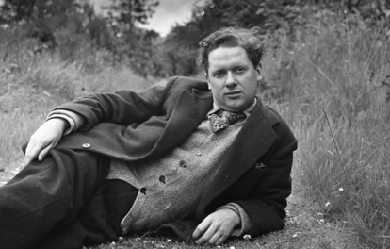

Dylan Marlais Thomas (27 October 1914 – 9 November 1953) was a Welsh poet and writer who wrote exclusively in English. In addition to poetry, he wrote short stories and scripts for film and radio, which he often performed himself. His public readings, particularly in America, won him great acclaim; his sonorous voice with a subtle Welsh lilt became almost as famous as his works. His best-known works include the “play for voices” Under Milk Wood and the celebrated villanelle for his dying father, “Do not go gentle into that good night”. Appreciative critics have also noted the craftsmanship and compression of poems such as “In my Craft or Sullen Art”, and the rhapsodic lyricism in “And death shall have no dominion” and “Fern Hill”.
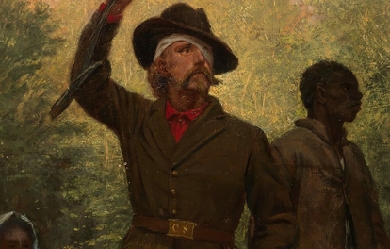
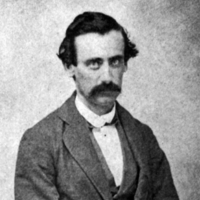
Henry Timrod (December 8, 1829– October 7, 1867) was an American poet, often called the poet laureate of the Confederacy. Early life Timrod was born on December 8, 1829, in Charleston, South Carolina, to a family of German descent. His grandfather Heinrich Dimroth emigrated to the United States in 1765 and anglicized his name. His father, William Henry Timrod, was an officer in the Seminole Wars and a poet himself. In fact, he composed the following poem on the subject of his eldest son, Henry: Harry, my little blue-eyed boy, I love to have thee playing near; There’s music in thy shouts of joy, To a fond father’s ear. I love to see the lines of mirth Mantle thy cheeks and forehead fair, As if all the pleasures of the earth Had met to revel there. For gazing on thee do I sigh That those most happy years must flee; And thy full share of misery Must fall in life on thee. The elder Timrod died from tuberculosis on July 28, 1838, in Charleston, at the age of 44, leaving behind his wife of 25 years, Thyrza Prince Timrod, and their four children, the eldest of which was Adaline Rebecca, 14 years; Henry was nine. A few years later, their home burned down, leaving the family impoverished. He studied at the University of Georgia beginning in 1847 with the help of a financial benefactor. He was soon forced by illness to end his formal studies, however, and returned to Charleston. He took a position with a lawyer and planned to begin a law practice. From 1848 to 1853, he submitted a number of poems to the Southern Literary Messenger under the pen name Aglaus, where he attracted some attention for his abilities. He left his legal studies by December 1850, calling it “distasteful”, and focused more on writing and tutoring. He was a member of Charleston’s literati, and with John Dickson Bruns and Basil Lanneau Gildersleeve, could often be found in the company of their leader, William Gilmore Simms, whom they referred to as “Father Abbot,” from one of his novels. Career In 1856, he accepted a post as a teacher at the plantation of Colonel William Henry Cannon in the area that would later become Florence, South Carolina. Cannon had a single-room school building built in 1858 to provide for the education of the plantation children. The building measures “only about twelve by fifteen feet in size.” Among his students was the young lady who would later become his bride and the object of a number of his poems– the “fair Saxon” Kate Goodwin. These lines from “Katie”, the opening poem of The Poems of Henry Timrod (1873), are an example: The blackbird from a neighboring thorn With music brims the cup of morn, And in a thick, melodious rain The mavis pours her mellow strain! But only when my Katie’s voice Makes all the listening woods rejoice I hear—with cheeks that flush and pale— The passion of the nightingale! While teaching and tutoring, he continued also to publish his poems in literary magazines. In 1860, he published a small book, which, although a commercial failure, increased his fame. The best-known poem from the book was “A Vision of Poesy”. Civil War period With the outbreak of American Civil War, in a state of fervent patriotism, Timrod returned to Charleston to begin publishing his war poems, which drew many young men to enlist in the service of the Confederacy. His first poem of this period is “Ethnogenesis”, written in February, 1861, during the meeting of the first Confederate Congress at Montgomery, Alabama. Part of the poem was read aloud at this meeting: Hath not the morning dawned with added light? And shall not evening call another star Out of the infinite regions of the night To mark this day in Heaven? At last we are A nation among nations. And the world Shall soon behold in many a distant port Another flag unfurled! “A Cry to Arms”, “Carolina” and “The Cotton Boll” are other famous examples of his martial poetry. He was a frequent contributor of poems to Russell’s Magazine and to The Southern Literary Messenger. On March 1, 1862, Timrod enlisted into the military as a private in Company B, 30th South Carolina Regiment, and was detailed for special duty as a clerk at regimental headquarters, but his tuberculosis prevented much service, and he was sent home. After the bloody Battle of Shiloh, he tried again to live the camp life as a western war correspondent for the Charleston Mercury, but this too was short lived as he was not strong enough for the rugged task. He returned from the front and settled in Columbia, South Carolina, to become associate editor of the South Carolinian, a daily newspaper. Throughout 1864 he wrote many articles for the paper. In February 1864 he married his beloved Katie, and they soon had a son, Willie, born on Christmas Eve. This happy period in his life was short-lived. General Sherman’s troops invaded Columbia on February 17, 1865, one year and one day after his marriage. Due to the vigor of his editorials, he was forced into hiding, his home was burned, and the newspaper office was destroyed. Death The aftermath of war brought his family poverty and to him and his wife, increasing illness. He moved his family into his sister and mother’s home in Columbia. Then, his son Willie died on October 23, 1865. He expressed his sorrow in the poem “Our Willie”: ’Twas a merry Christmas when he came, Our little boy beneath the sod; And brighter burned the Christmas flame, And merrier sped the game Because within the house there lay A shape as tiny as a fay— The Christmas gift of God! He took a post as correspondent for a new newspaper based in Charleston, The Carolinian, but continued to reside in Columbia. Even after several months of work, however, he was never paid, and the paper folded. In economic desperation, he submitted poems written in his strongest style to northern periodicals, but all were coldly declined. Henry continued to seek work, but continued to be disappointed. Finally, in November, 1866, he was given an assistant clerkship under Governor James L. Orr’s staff member James S. Simons. This lasted less than a month, after which he was again dependent on charity and odd jobs to feed his family of women. Despite the harshly reduced circumstances, and mounting health problems, he was still able to produce highly regarded poetry. His “Memorial Ode”, composed in the Spring of 1867 “was sung at Magnolia Cemetery, Charleston, in May when the graves of the southern dead were decorated.” Sleep sweetly in your humble graves, Sleep, martyrs of a fallen cause; Though yet no marble column craves The pilgrim here to pause. In seeds of laurel in the earth The blossom of your flame is blown, And somewhere, waiting for its birth, The shaft is in the stone! Meanwhile, behalf the tardy years Which keep in trust your storied tombs, Behold! Your sisters bring their tears, And these memorial blooms. He finally succumbed to consumption Sunday morning, October 7, 1867, and was laid to rest in the churchyard at Trinity Episcopal Church in Columbia next to his son. Criticism and legacy Timrod’s friend and fellow poet, Paul Hamilton Hayne, posthumously edited and published The Poems of Henry Timrod, with more of Timrod’s more famous poems in 1873, including his "Ode: Sung on the Occasion of Decorating the Graves of the Confederate Dead at Magnolia Cemetery, Charleston, S.C., 1867" and “The Cotton Boll”. Later critics of Timrod’s writings, including Edd Winfield Parks and Guy A. Cardwell, Jr. of the University of Georgia, Jay B. Hubbell of Vanderbilt University and Christina Murphy, who completed a Ph.D. dissertation on Timrod at the University of Connecticut, have asserted that Timrod was one of the most important regional poets of nineteenth-century America and one of the most important Southern poets. In terms of achievement, Timrod is often compared to Sidney Lanier and John Greenleaf Whittier as poets who achieved significant stature by combining lyricism with a poetic capacity for nationalism. All three poets also explored the heroic ode as a poetic form. Today, Timrod’s poetry is included in most of the historical anthologies of American poetry, and he is regarded as a significant-though secondary-figure in 19th-century American literature. In 1901, a monument with a bronze bust of Timrod was dedicated in Charleston. The state’s General Assembly passed a resolution in 1911 instituting the verses of his poem “Carolina” as the lyrics of the official state anthem. In September 2006, an article for The New York Times noted similarities between Bob Dylan’s lyrics in the album, Modern Times and the poetry of Timrod. A wider debate developed in The Times as to the nature of “borrowing” within the folk tradition and in literature. References Wikipedia—https://en.wikipedia.org/wiki/Henry_Timrod
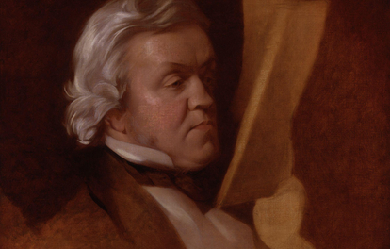
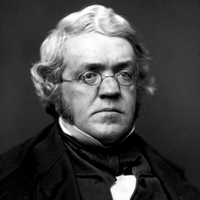
William Makepeace Thackeray (18 July 1811– 24 December 1863) was an English novelist of the 19th century. He is famous for his satirical works, particularly Vanity Fair, a panoramic portrait of English society. He began as a satirist and parodist, writing works that displayed a sneaking fondness for roguish upstarts such as Becky Sharp in Vanity Fair, and the title characters of The Luck of Barry Lyndon and Catherine. In his earliest works, written under such pseudonyms as Charles James Yellowplush, Michael Angelo Titmarsh and George Savage Fitz-Boodle, he tended towards savagery in his attacks on high society, military prowess, the institution of marriage and hypocrisy.
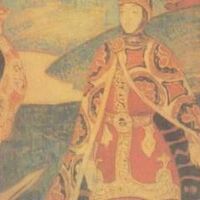
I am the Traveller, I bring my gift to world. I have no name because I am a reflection of you, I want to show all people who read these poems that we connect inside the poetry. I am a man who is living his lifetime of happiness, joy, peace, laughter, fun, strength, courage and love. I believe we should always be happy because we remember that we are special and unique with gifts in this world that nobody has but you. We deserve the best and the world deserves the best of what we have to give. I know I have gift to share and I will share my gift with you, in hope it can help you too to share your own gift with the world.
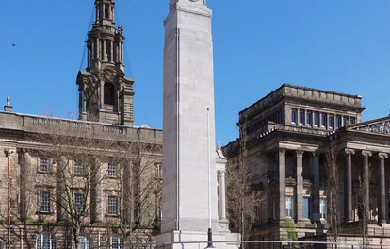
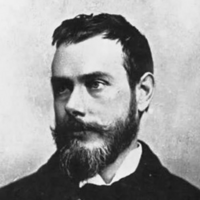
Francis Thompson (16 December 1859– 13 November 1907) was an English poet and ascetic. After attending college, he moved to London to become a writer, but could only find menial work and became addicted to opium, and was a street vagrant for years. A married couple read his poetry and rescued him, publishing his first book Poems in 1893. Thompson lived as an unbalanced invalid in Wales and at Storrington, but wrote three books of poetry, with other works and essays, before dying of tuberculosis in 1907. Life and work Thompson was born in Winckley Street, Preston, Lancashire. His father, Charles, was a doctor who had converted to Roman Catholicism, following his brother Edward Healy Thompson, a friend of Cardinal Manning. Thompson was educated at Ushaw College, near Durham, and then studied medicine at Owens College, now the University of Manchester. He took no real interest in his studies and never practised as a doctor, moving instead to London in 1885, to try to become a writer. Here he was reduced to selling matches and newspapers for a living. During this time, he became addicted to opium, which he first had taken as medicine for ill health. Thompson started living on the streets of Charing Cross and sleeping by the River Thames, with the homeless and other addicts. He was turned down by Oxford University, not because he was unqualified, but because of his drug addiction. Thompson attempted suicide in his nadir of despair, but was saved from completing the action through a vision which he believed to be that of a youthful poet Thomas Chatterton, who had committed suicide almost a century earlier. A prostitute– whose identity Thompson never revealed– befriended him, gave him lodgings and shared her income with him. Thompson was later to describe her in his poetry as his saviour. She soon disappeared, however, never to return, in his estimation because she feared she would taint his growing reputation. In 1888, he had been 'discovered’ after sending his poetry to the magazine Merrie England. He had been sought out by the magazine’s editors, Wilfrid and Alice Meynell. Recognizing the value of his work, the couple gave him a home and arranged for publication of his first book Poems in 1893. The book attracted the attention of sympathetic critics in the St James’s Gazette and other newspapers, and Coventry Patmore wrote a eulogistic notice in the Fortnightly Review of January 1894. Concerned about his opium addiction, which was at its height following his years on the streets, the Meynells sent Thompson to Our Lady of England Priory, Storrington. Thompson subsequently lived as an invalid at Pantasaph, Flintshire in Wales and at Storrington. A lifetime of extreme poverty, ill-health, and an addiction to opium took a heavy toll on Thompson, even though he found success in his last years. He would eventually die from tuberculosis at the age of 47, in the Hospital of St John and St Elizabeth and he is buried in St. Mary’s Roman Catholic Cemetery in Kensal Green. His tomb bears the last line from a poem he wrote for his godson - Look for me in the nurseries of Heaven. Style and influence His most famous poem, The Hound of Heaven, describes the pursuit of the human soul by God. This poem is the source of the phrase “with all deliberate speed,” used by the Supreme Court in Brown II, the remedy phase of the famous decision on school desegregation. A phrase in The Kingdom of God is the source of the title of Han Suyin’s novel Love Is a Many-Splendored Thing. In addition, Thompson wrote the most famous cricket poem, the nostalgic At Lord’s. He also wrote Sister Songs (1895), New Poems (1897), and a posthumously published essay, Shelley (1909). He wrote a treatise On Health and Holiness, dealing with the ascetic life, which was published in 1905. G. K. Chesterton said shortly after his death that “with Francis Thompson we lost the greatest poetic energy since Browning.” Among Thompson’s devotees was the young J. R. R. Tolkien, who purchased a volume of Thompson’s works in 1913-1914, and later said that it was an important influence on his own writing. The American novelist Madeleine L’Engle used a line from the poem The Mistress of Vision as the title of her last Vicki Austin novel, Troubling a Star. In 2011, Thompson’s life was the subject of the stage play and film script HOUND (Visions in the Life of the Poet Francis Thompson) by writer/director Chris Ward, which has been performed in various venues around London. Jack the Ripper suspect In his 1999 book Paradox, Australian author and educator Richard Patterson named Thompson as a possible identity of serial killer Jack the Ripper. On 6 November 2015, Patterson strengthened his claim. Home Thompson’s birthplace, in Winckley Street, Preston is marked by a memorial plaque. The inscription reads: "Francis Thompson poet was born in this house Dec 16 1859. Ever and anon a trumpet sounds, From the hid battlements of eternity." The home in Ashton-under-Lyne where Thompson lived from 1864 to 1885 was also marked with a blue plaque. In 2014, however, the building collapsed. References Wikipedia—https://en.wikipedia.org/wiki/Francis_Thompson

“A day with out a smile is a day wasted.” i'm only 18 i love writing poems or just writing its my own way of self explaining myself in any type of emotional thoughts. I'm a crazy army brat i have moved from countries to states to cities , that has helped me with my writing only in the matter that i find and have more to write about
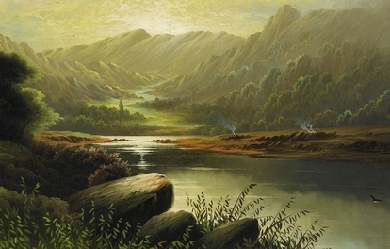
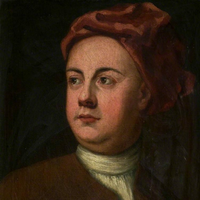
James Thomson (c. 11 September 1700– 27 August 1748) was a Scottish poet and playwright, known for his masterpiece The Seasons and the lyrics of “Rule, Britannia!”. Scotland, 1700–1725 James Thomson was born in Ednam in Roxburghshire around 11 September 1700 and baptised on 15 September. He was the fourth of nine children of Thomas Thomson and Beatrix Thomson (née Trotter). Beatrix Thomson was born in Fogo, Berwickshire and was a distant relation of the house of Hume. Thomas Thomson was the Presbyterian minister of Ednam until eight weeks after Thomson’s birth, when he was admitted as minister of Southdean, where Thomson spent most of his early years. Thomson may have attended the parish school of Southdean before going to the grammar school in Jedburgh in 1712. He failed to distinguish himself there. Shiels, his earliest biographer, writes: 'far from appearing to possess a sprightly genius, [Thomson] was considered by his schoolmaster, and those which directed his education, as being really without a common share of parts’. He was, however, encouraged to write poetry by Robert Riccaltoun (1691–1769), a farmer, poet and Presbyterian minister; and Sir William Bennet (d. 1729), a whig laird who was a patron of Allan Ramsay. While some early poems by Thomson survive, he burned most of them on New Year’s Day each year. Thomson entered the College of Edinburgh in autumn 1715, destined for the Presbyterian ministry. At Edinburgh he studied metaphysics, Logic, Ethics, Greek, Latin and Natural Philosophy. He completed his arts course in 1719 but chose not to graduate, instead entering Divinity Hall to become a minister. In 1716 Thomas Thomson died, with local legend saying that he was killed whilst performing an exorcism. At Edinburgh Thomson became a member of the Grotesque Club, a literary group, and he met his lifelong friend David Mallet. After the successful publication of some of his poems in the ‘’Edinburgh Miscellany’’ Thomson followed Mallet to London in February 1725 in an effort to publish his verse. London, 1725–1727 In London, Thomson became a tutor to the son of Charles Hamilton, Lord Binning, through connections on his mother’s side of the family. Through David Mallet, by 1724 a published poet, Thomson met the great English poets of the day including Richard Savage, Aaron Hill and Alexander Pope. Thomson’s mother died on 12 May 1725, around the time of his writing ‘Winter’, the first poem of ‘‘The Seasons’’. ‘Winter’ was first published in 1726 by John Millian, with a second edition being released (with revisions, additions and a preface) later the same year. By 1727, Thomson was working on Summer, published in February, and was working at Watt’s Academy, a school for young gentlemen and a bastion of Newtonian science. In the same year Millian published a poem by Thomson titled ‘A Poem to the Memory of Sir Isaac Newton’ (who had died in March). Leaving Watt’s academy, Thomson hoped to earn a living through his poetry, helped by his acquiring several wealthy patrons including Thomas Rundle, the countess of Hertford and Charles Talbot, 1st Baron Talbot. Later life, 1728–1748 He wrote Spring in 1728 and finally Autumn in 1730, when the set of four was published together as The Seasons. During this period he also wrote other poems, such as to the Memory of Sir Isaac Newton, and his first play, The Tragedy of Sophonisba (1729). The latter is best known today for its mention in Samuel Johnson’s Lives of the English Poets, where Johnson records that one 'feeble’ line of the poem - “O, Sophonisba, Sophonisba, O!” was parodied by the wags of the theatre as, “O, Jemmy Thomson, Jemmy Thomson, O!”. In 1730, he became tutor to the son of Sir Charles Talbot, then Solicitor-General, and spent nearly two years in the company of the young man on a tour of Europe. On his return Talbot arranged for him to become a secretary in chancery, which gave him financial security until Talbot’s death in 1737. Meanwhile, there appeared his next major work, Liberty (1734). In 1740, he collaborated with Mallet on the masque Alfred which was first performed at Cliveden, the country home of Frederick, Prince of Wales. Thomson’s words for “Rule Britannia”, written as part of that masque and set to music by Thomas Arne, became one of the best-known British patriotic songs - quite apart from the masque which is now virtually forgotten. The Prince gave him a pension of £100 per annum. He had also introduced him to George Lyttelton, who became his friend and patron. In later years, Thomson lived in Richmond upon Thames, and it was there that he wrote his final work The Castle of Indolence, which was published just before his untimely death on 27 August 1748. Johnson writes about Thomson’s death, “by taking cold on the water between London and Kew, he caught a disorder, which, with some careless exasperation, ended in a fever that put end to his life”. He is buried in St. Mary Magdalene church in Richmond. A dispute over the publishing rights to one of his works, The Seasons, gave rise to two important legal decisions (Millar v. Taylor; Donaldson v. Beckett) in the history of copyright. Thomson’s The Seasons was translated into German by Barthold Heinrich Brockes (1745). This translation formed the basis for a work with the same title by Gottfried van Swieten, which became the libretto for Haydn’s oratorio The Seasons. Memorials Thomson is one of the sixteen Scottish poets and writers appearing on the Scott Monument on Princes Street in Edinburgh. He appears on the right side of the east face. Editions Thomson, James & Bloomfield, Robert, The Seasons & Castles of Indolence / The Farmer’s Boy, Rural Tales, Banks of the Wye, &c. &c., (London: Scott, Webster & Geary, 1842). Gilfillan, Rev. George, Thomson’s Poetical Works, with Life, Critical Dissertation, and Explanatory Notes, Library Edition of the British Poets (1854). Thomson, James. The Seasons, by... A New Edition. Adorned with A Set of Engravings, from Original Paintings. Together with an Original Life of the Author, and a Critical Essay on the Seasons. by Robert Heron, (Perth: R. Morison, 1793) Thomson, James. Poems, edited by William Bayne, London: Walter Scott Publishing Co., [1900], (Series: The Canterbury poets). Thomson, James. The Seasons, edited with introduction and commentary by James Sambrook, (Oxford: Clarendon Press, 1981) ISBN 0-19-812713-8. Thomson, James. Liberty, The Castle of Indolence and other poems, edited with introduction and commentary by James Sambrook, (Oxford: Clarendon Press, 1986) ISBN 0-19-812759-6. Bayne, William, Life of James Thomson, Edinburgh: Oliphant, Anderson and Ferrier, 1898, ("Famous Scots Series"). References Wikipedia—https://en.wikipedia.org/wiki/James_Thomson_(poet,_born_1700)

I am the sun that shines when darkness tries to win. I am the prayer one will say when times are tough. I am the love in your eyes. I am the reflection in the mirror and sometimes I do what the mirror does. I am magic in your eyes. Whoever is reading this. I am the peace inside. Simply coz I am the image of God. Sifiso Alsonjnr my life is Poetry
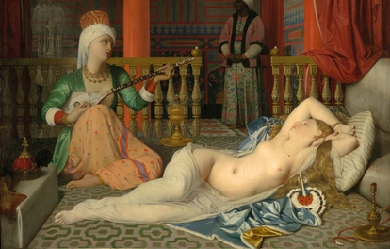
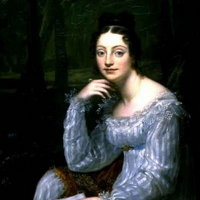
Amable Tastu, nom de plume de Sabine Casimire Amable Voïart, née le 31 août 1798 à Metz et morte le 10 janvier 1885 à Palaiseau, est une femme de lettres française. Biographie Sabine Casimire Amable Voïart, née rue des clercs à Metz, est la fille de l’administrateur aux vivres de l’armée Jacques-Philippe Voïart et de Jeanne-Amable Bouchotte, sœur du ministre de la guerre, Jean-Baptiste Bouchotte. Elle perd sa mère en 1802 et en 1806, son père se remarie avec Anne-Élisabeth-Élise Petitpain, femme de lettres de Nancy qui partage avec Amable sa connaissance de l’anglais, de l’allemand et de l’italien. En 1816, elle épouse l’imprimeur perpignanais Joseph Tastu qui la trompe. Un an plus tard, elle met au monde un fils, Eugène. L’année suivante, en 1819, son mari quitte Perpignan et se rend à Paris pour reprendre l’imprimerie libérale des frères Beaudouin, au no 36 rue de Vaugirard. Sous son nom de plume d’Amable Tastu, elle écrit et publie des poèmes qui lui apportent la notoriété. C’est la muse romantique par excellence. En 1851, la rose Amable Tastu est créée en hommage. Après des années de prospérité, les affaires de son mari déclinent. La crise économique de 1830 a raison de son imprimerie et il fait faillite. Amable abandonne alors la poésie pour se livrer à des productions alimentaires afin de subvenir aux besoins de sa famille. Christine Planté précise: « Elle dut vivre de sa plume en rédigeant des travaux alimentaires pour combler l’indigence de son mari ruiné par la révolution de Juillet et inapte à se refaire ». Elle collabore régulièrement au Mercure de France et à La Muse française. Elle publie des ouvrages pédagogiques, des traductions, des sommes historiques, un Cours d’histoire de France, publié en accord avec le ministre de l’Instruction publique, un volume sur la littérature allemande, un autre sur la littérature italienne. Elle est également l’auteure de libretti pour des musiciens comme Saint-Saëns. En 1849, après la mort de son mari, elle suit son fils Eugène dans ses missions diplomatiques à Chypre et à Bagdad. En 1866, elle revient pour quelques années à Paris. En 1871, elle s’installe à Palaiseau où elle continue à mener une intense vie sociale et y meurt le 10 janvier 1885. Relations Elle est très appréciée de Lamartine, Sainte Beuve, Hugo, Chateaubriand, Marceline Desbordes-Valmore. Victor Hugo lui dédie son Moïse sur le Nil et Chateaubriand son Camoens. Sainte-Beuve compose en son honneur une élégie de 18 quatrains et lui consacre 16 pages dans ses Portraits contemporains.
#FemmesÉcrivains #ÉcrivainsFrançais
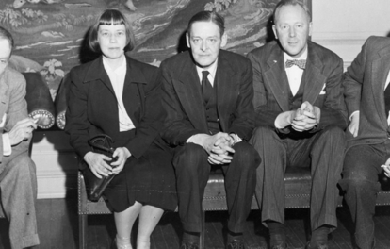
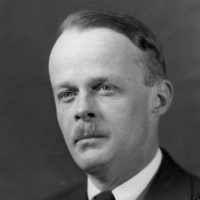
John Orley Allen Tate (November 19, 1899– February 9, 1979) was an American poet, essayist, social commentator, and Poet Laureate Consultant in Poetry to the Library of Congress from 1943 to 1944. Life Early years Tate was born near Winchester, Kentucky, to John Orley Tate, a businessman, and Eleanor Parke Custis Varnell. In 1916 and 1917 Tate studied the violin at the Cincinnati Conservatory of Music. Vanderbilt University, Kenyon College and The Fugitives He began attending Vanderbilt University in 1918, where he met fellow poet Robert Penn Warren. Warren and Tate were invited to join an informal literary group of young Southern poets under the leadership of John Crowe Ransom; the group were known as the Fugitives. Tate contributed to the group’s magazine The Fugitive. The aim of the group, according to the critic J. A. Bryant, was "to demonstrate that a group of southerners could produce important work in the medium [of poetry], devoid of sentimentality and carefully crafted," and they wrote in the formalist tradition that valued the skillful use of meter and rhyme. Tate also joined Ransom to teach at Kenyon College in Gambier, Ohio. Some of his notable students there included the poets Robert Lowell and Randall Jarrell. Lowell’s early poetry was particularly influenced by Tate’s formalist brand of Modernism. 1920s In 1924, Tate moved to New York City where he met poet Hart Crane, with whom he had been exchanging correspondence for some time. Over a four-year period, he worked freelance for The Nation, contributed to the Hound & Horn, Poetry magazine, and others. To make ends meet, he worked as a janitor. (Some years later, he would also contribute articles to the conservative National Review.) During a summer visit with the poet Robert Penn Warren in Kentucky, he began a relationship with writer Caroline Gordon. The two lived together in Greenwich Village, but moved to “Robber Rocks”, a house in Patterson, New York, with friends Slater Brown and his wife Sue, Hart Crane, and Malcolm Cowley. Tate married Gordon in New York in May 1925. Their daughter Nancy was born in September. In 1928, along with others New York City friends, he went to Europe. In London, he visited with T. S. Eliot, whose poetry and criticism he greatly admired, and he also visited Paris. In 1928, Tate published his first book of poetry, Mr. Pope and Other Poems, which contained his most famous poem, “Ode to the Confederate Dead” (not to be confused with “Ode to the Confederate Dead at Magnolia Cemetery” by the Civil War poet Henry Timrod). That same year, Tate also published a biography Stonewall Jackson: The Good Soldier. Just before leaving for Europe in 1928, Tate described himself to John Gould Fletcher as “an enforced atheist”. He later told Fletcher, “I am an atheist, but a religious one—which means that there is no organization for my religion.” He regarded secular attempts to develop a system of thought for the modern world as misguided. “Only God,” he insisted, “can give the affair a genuine purpose.” In his essay “The Fallacy of Humanism” (1929), he criticized the New Humanists for creating a value system without investing it with any identifiable source of authority. “Religion is the only technique for the validation of values,” he wrote. Although he was attracted to Roman Catholicism, he deferred converting. Louis D. Rubin, Jr. observes that Tate may have waited “because he realized that for him at this time it would be only a strategy, an intellectual act”. In 1929, Tate published a second biography Jefferson Davis: His Rise and Fall. 1930s After two years abroad, he returned to the United States, and in 1930 was back in Tennessee. Here he took up residence in an antebellum mansion with an 85-acre estate attached, that had been bought for him by one of his brothers, “who had made a lot of northern money out of coal.” He resumed his senior position with the Fugitives. Along with fellow Fugitives, Warren and Ransom, as well as nine other Southern writers, Tate also joined the conservative political group known as the Southern Agrarians. The group was made up of 12 members who published essays on their political philosophy in the book I’ll Take My Stand published in 1930. Tate contributed the essay, “Remarks on the Southern Religion” to I’ll Take My Stand. This book was followed in 1938 by Who Owns America?, the Southern Agrarians’ response to The New Deal. During this time, Tate also became the de facto associate editor of The American Review, which was published and edited by Seward Collins. Tate believed The American Review could popularize the work of the Southern Agrarians. He objected to Collins’s open support of Fascists Benito Mussolini and Adolf Hitler, and condemned fascism in an article in The New Republic in 1936. Much of Tate’s major volumes of poetry were published in the 1930s, and the scholar David Havird describes this publication history in poetry as follows: By 1937, when he published his first Selected Poems, Tate had written all of the shorter poems upon which his literary reputation came to rest. This collection—which brought together work from two recent volumes, Poems: 1928-1931 (1932) and the privately printed The Mediterranean and Other Poems (1936), as well as the early Mr. Pope—included “Mother and Son,” “Last Days of Alice,” “The Wolves,” “The Mediterranean,” “Aeneas at Washington,” “Sonnets at Christmas,” and the final version of “Ode to the Confederate Dead.” In 1938 Tate published his only novel, The Fathers, which drew upon knowledge of his mother’s ancestral home and family in Fairfax County, Virginia. 1940s Tate and Gordon were divorced in 1945 and remarried in 1946. Though devoted to one another for life, they could not get along and later divorced again. Tate was a poet-in-residence at Princeton University until 1942. He founded the Creative Writing program at Princeton, and mentored Richard Blackmur, John Berryman, and others. In 1942, Tate assisted novelist and friend Andrew Lytle in transforming The Sewanee Review, America’s oldest literary quarterly, from a modest journal into one of the most prestigious in the nation. Tate and Lytle had attended Vanderbilt together prior to collaborating at The University of the South. 1950s In 1950, Tate converted to Roman Catholicism. He also married the poet Isabella Gardner in the early 1950s. 1960s While teaching at the University of Minnesota in Minneapolis, he met Helen Heinz, a nun enrolled in one of his courses and began an affair with her. Tate divorced Gardner and married Heinz in 1966. They moved to Sewanee, Tennessee. In 1967, Tate became the father of twin sons. The youngest died at eleven months from an accident. A third son was born in 1969. Tate died in Nashville, Tennessee ten years later. His papers are collected at the Firestone Library at Princeton University. Attitudes on race Literary scholars have questioned the relationship between the cultural attitudes of Modernist poets on issue such as race and the writing produced by these poets. The decade of the 1930s saw Tate’s most notable stances on matters that may or may not be connected to literary craft. For example, though Tate spoke well of the work of fellow Modernist poet Langston Hughes, in 1931, Tate pressured his colleague Thomas Mabry into canceling a reception for Hughes, comparing the idea of socializing with the black poet to meeting socially with his black cook. From the 1930s until as late as the 1960s, Tate held prejudices against both African-Americans and Jews. He expressed views against interracial marriage and miscegenation and refused to associate with African-American writers (like the aforementioned Langston Hughes). Up until the 1960s, Tate also believed in white supremacy. In 1933, Tate wrote a letter for Hound & Horn explaining his views on interracial sex. “The negro race is an inferior race....miscegenation due to a white woman and a negro man” threatened the white family. “Our purpose..is to keep the negro blood from passing into the white race.” According to the critic Ian Hamilton, Tate and his co-agrarians had been more than ready at the time to overlook the anti-Semitism and pro-Hitlerism of the American Review in order to promote their 'spiritual’ defence of the Deep South’s traditions. In a 1934 review, “A View of the Whole South” Tate reviews W. T. Couch’s “Culture in The South: A Symposium by Thirty-one Authors” and defends racial hegemony: “I argue it this way: the white race seems determined to rule the Negro race in its midst; I belong to the white race; therefore I intend to support white rule. Lynching is a symptom of weak, inefficient rule; but you can’t destroy lynching by fiat or social agitation; lynching will disappear when the white race is satisfied that its supremacy will not be questioned in social crises.” According to the poetry editor of The New Criterion, David Yezzi, Tate held the conventional social views of a white Southerner in 1934: an “inherited racism, a Southern legacy rooted in place and time that Tate later renounced.” Tate was born of a Scotch-Irish lumber manager whose business failures required moving several times per year, Tate said of his upbringing ""we might as well have been living, and I been born, in a tavern at a crossroads." However, his views on race were not passively incorporated; Thomas Underwood documents Tate’s pursuit of racist ideology: “Tate also drew ideas from nineteenth-century proslavery theorists such as Thomas Roderick Dew, a professor at The College of William and Mary, and William Harper, of the University of South Carolina—”We must revive these men, he said.” Bibliography References Wikipedia—https://en.wikipedia.org/wiki/Allen_Tate

* A creative minded Smart Girl.. * I do my thing and you do yours... I am not in this world to live up to your expectations, and you are not in this world to live up to mine. * You are you and I am I, and if by chance we find each other, then it is beautiful. If not, it cant be helped. * I am you; you are me. You are the waves; I am the ocean. Know this and be free, be divine.
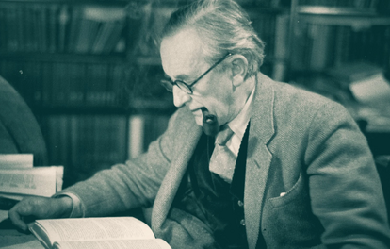
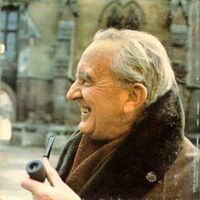
John Ronald Reuel Tolkien, 3 January 1892 – 2 September 1973) was an English writer, poet, philologist, and university professor who is best known as the author of the classic high-fantasy works The Hobbit, The Lord of the Rings, and The Silmarillion. He served Professor of Anglo-Saxon and English Language and Literature, and Fellow of Pembroke College, Oxford. He was at one time a close friend of C. S. Lewis—they were both members of the informal literary discussion group known as the Inklings. Tolkien was appointed a Commander of the Order of the British Empire by Queen Elizabeth II on 28 March 1972.
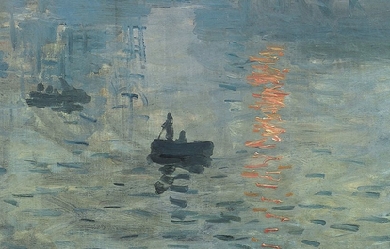
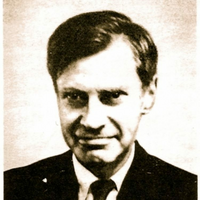
Arthur Seymour John Tessimond (Birkenhead, 19 July 1902– Chelsea, London 13 May 1962) was an English poet. He went to Birkenhead School until the age of 14, before being sent to Charterhouse School, but ran away at age 16. From 1922 to 1926 he attended the University of Liverpool, where he read English literature, French, Philosophy and Greek. He later moved to London where he worked in bookshops, and also as a copywriter. After avoiding military service in World War II, he later discovered he was unfit for service. He suffered from bipolar disorder, and received electro-convulsive therapy. He first began to publish in the 1920s in literary magazines. He was to see three volumes of poetry were published during his life: Walls of Glass in 1934, Voices in a Giant City in 1947 and Selections in 1958. He contributed several poems to a 1952 edition of Bewick’s Birds. He died in 1962 from a brain haemorrhage. In the mid-1970s he was the subject of a radio programme entitled Portrait of a Romantic. This, together with the publication of the posthumous selection Not Love Perhaps in 1972, increased interest in his work; and his poetry subsequently appeared in school books and anthologies. A 1985 anthology of his work The Collected Poems of A. S. J. Tessimond, edited by Hubert Nicholson, contains previously unpublished works. In 2010 a new collected poems, based closely on Nicholson’s edition, was published by Bloodaxe Books. In April 2010 an edition of Brian Patten’s series Lost Voices on BBC Radio Four was committed solely to Tessimond. References Wikipedia—https://en.wikipedia.org/wiki/A._S._J._Tessimond
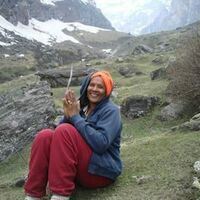
Namaste, Although I am now residing in sunny Florida, I grew up in Queens, New York. I am the eldest daughter of Jamaican, West Indian immigrants. We were a lively family, five siblings altogether with plenty of love and joviality to go around. From early on, I loved creating stories. My brothers and sisters also keenly enjoyed listening to them. But, being the natural artist, I preferred to retreat into the silence of my room surrounded by my dolls, where we would embark on all sorts of imaginative and adventurous tales. My siblings would listen with their ears glued to the bedroom door, occasionally a giggle of delight escaped from the other side of the door. This interest in story telling gradually metamorphosed into the art of penning poetry. Over the years I have written many poems. The fascinating thing about the imaginative process that I've observed, is that there seems to be some sort of bridge that connects us to the creative source. This is similar to what I experienced in my childhood, a quiet space within, beyond me where creative ideas flow endlessly. On another note, I am also an artist. But, LOL, all of my paintings tell a story too. My work is a visual and poetic diary of my spiritual journey. From the highest peaks in the Himalayas to many of the sacred ashrams in holy India I have been blessed with the opportunity to journey through that divine land eleven times. My spiritual quest began on June 6, 1970 with the birth of my daughter. During the birth I had an amazing out-of-body-experience which catapulted me out of ordinary three dimensional awareness into an astounding, metaphysical reality which I know survives and surpasses death, misery, joy, materialism and all that is dualistic and worldly. A space of being in which Pure Love, Life and Light exists Eternally. This event inspired me to explore the intriguing inner realms of Self through Yoga, Meditation, Rosicrucianism and other spiritually laden paths. I have written two books. The first, "Sai Rapture, The Ecstatic Journey of a Modern Day Gopi " portrays my spiritual journey. The second book, "108 Bhakti Kisses, The Ecstatic Poetry of a Modern Day Gopi" is a garland of poems celebrating the divine in everything.
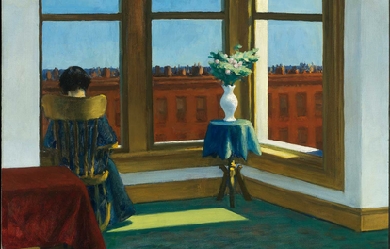
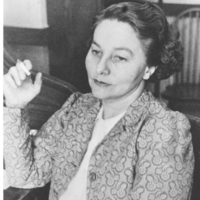
Genevieve Taggard (November 28, 1894 Waitsburg, Washington– November 8, 1948 New York City) was an American poet. During the 1930s, sparked in part by the Great Depression, but also largely by her philanthropic upbringing and her commitment to socialism, her poetry began to reflect her political and social views much more prominently. During this time a Guggenheim Fellowship allowed her to spend a year in Majorca, Spain and Antibes, France. The experience of Spain in its time shortly before the Spanish Civil War gave further rise and inspiration to her cause of raising social and political awareness of civil rights issues.
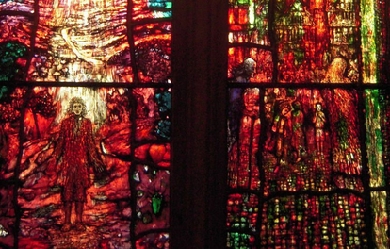
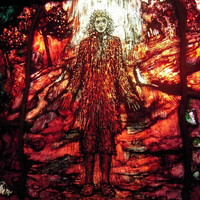
Thomas Traherne (1636 or 1637– ca. 27 September 1674) was an English poet, clergyman, theologian, and religious writer. Little information is known about his life. The intense, scholarly spirituality in his writings has led to his being commemorated by some parts of the Anglican Communion on 10 October (the anniversary of his burial in 1674) or on September 27. The work for which Traherne is best known today is the Centuries of Meditations, a collection of short paragraphs in which he reflects on Christian life and ministry, philosophy, happiness, desire and childhood. This was first published in 1908 after having been rediscovered in manuscript ten years earlier. His poetry likewise was first published in 1903 and 1910 (The Poetical Works of Thomas Traherne, B.D. and Poems of Felicity). His prose works include Roman Forgeries (1673), Christian Ethics (1675), and A Serious and Patheticall Contemplation of the Mercies of God (1699). Traherne’s poetry is often associated with the metaphysical poets, even though his poetry was unknown for two centuries after his death. His manuscripts were kept among the private papers of the Skipps family of Ledbury, Herefordshire, until 1888. Then, in the winter of 1896–97, two manuscript volumes containing his poems and meditations were discovered by chance for sale in a street bookstall. The poems were initially thought to be the work of Traherne’s contemporary Henry Vaughan (1621–95). Only through research was his identity uncovered and his work prepared for publication under his name. As a result, much of his work was not published until the first decade of the 20th century. Traherne’s writings frequently explore the glory of creation and what he perceived as his intimate relationship with God. His writing conveys an ardent, almost childlike love of God, and is compared to similar themes in the works of later poets William Blake, Walt Whitman, and Gerard Manley Hopkins. His love for the natural world is frequently expressed in his works by a treatment of nature that evokes Romanticism—two centuries before the Romantic movement. Biography Very little information is known about Thomas Traherne’s life. According to antiquarian Anthony à Wood (1632–1695), Traherne was a “shoemaker’s son of Hereford” born in either 1636 or 1637. Bertram Dobell identifies this shoemaker as John Traherne (b. 1566). However, other sources indicate that Thomas was the son of Philipp Traherne (or Trehearne) (1568–1645), a local innkeeper and twice Mayor of Hereford, and his third wife, Mary Lane. His birth or baptism is not recorded in parish registers. Traherne was educated at Hereford Cathedral School and matriculated in Brasenose College, Oxford, on 2 April 1652, receiving his baccalaureate degree on 13 October 1656. Five years later he was promoted to the degree of Master of Arts (Oxon.) on 6 November 1661, and he received a Bachelor of Divinity (B.D.) on 11 December 1669. After receiving his baccalaureate degree from Oxford in 1656, he took holy orders. The following year he was installed as the rector at Saint Mary’s Church in Credenhill near Hereford. He was appointed to the post at Credenhill on 30 December 1657 by the Commissioners for the Approbation of Public Preachers although at the time, he was not an ordained priest. A curious note appended to the record of his appointment is that Traherne counted upon the patronage of Ambella, Countess Dowager of Kent. Traherne served in this post for ten years although he was not ordained priest until after the restoration of the monarchy and the return of King Charles II. He was ordained at Launton near Bicester by Robert Skinner (1591–1670), the Bishop of Oxford, on 20 October 1660. In 1667 he became the private chaplain to Sir Orlando Bridgeman, 1st Baronet, of Great Lever, the Lord Keeper of the Great Seal to King Charles II, at Teddington (near Hampton Court) in Middlesex. Traherne died of smallpox at Bridgeman’s house in Teddington on 27 September 1674, having that day dictated a brief nuncupative will to his friend and neighbour John Berdoe, in which he made bequests to the servants who had looked after him and left his few belongings to his brother Philip and sister-in-law Susan. On 10 October 1674 he was buried in St Mary’s Church at Teddington, under the church’s reading desk. According to Anthony à Wood, Traherne “always led a simple and devout life; his will shows that he possessed little beyond his books, and thought it worth while to bequeath his ‘old hat.’” It is assumed, although largely unsubstantiated, that Traherne’s studies at Oxford may identify his Royalist leanings at a time when the Lord Protector Oliver Cromwell had deposed the monarchy after the English Civil War. The city of Oxford had been the centre of the Cavalier cause and the headquarters of the King’s forces before its surrender in May 1646 and the university was regarded as a focus of Royalist sentiment during the Interregnum. The claim that Traherne may have been a Royalist may be bolstered by an inscription on the tombstone of Philipp Traherne, thought to be his father, which eulogises Philipp’s fidelity to, and zeal for, the Royalist cause. Writings Much of Traherne’s work remains unpublished. He was not known during his lifetime, and only one of his works was published before his death in 1674 and two others were published shortly thereafter. Of his published work, almost all appeared posthumously, and most of it in the 20th century. Several unpublished manuscripts are held in museums, private collections and university archives, including the Bodleian Library at the University of Oxford, the British Library in London and the Beinecke Library at Yale University in New Haven, Connecticut. Traherne was an inconsequential literary figure during his lifetime and his works were not known or appreciated until long after his death. As a country priest he led a devout, humble life and did not participate in literary circles. Only one of his works, Roman Forgeries (1673), was published in his lifetime. Christian Ethicks (1675) followed soon after his death, and later A Serious and Patheticall Contemplation of the Mercies of God (1699), which was published as the work of an anonymous author whose character and background were discussed in a brief introduction by the publisher. From 1699 until the re-emergence of his work with Bertram Dobell’s editions in 1903, Traherne’s work fell into obscurity. If not for the chance discovery of an anonymous manuscript, his work and reputation might have been lost. Publication history and posthumous success At Traherne’s death in 1674 most of his manuscripts were bequeathed to his brother Philipp. After Philipp’s death they apparently passed into the possession of the Skipps family of Ledbury in Herefordshire, where they languished for almost 200 years. In 1888 the family’s assets were dissolved, yet the manuscripts did not re-emerge until 10 years later. In the winter of 1896–97, William T. Brooke of London discovered some anonymous manuscripts in a “barrow of books about to be trashed” or a “street bookstall”. Brooke thought that they might be lost works by Henry Vaughan and showed them to Alexander Grosart (1827–99), a Scottish clergyman and expert on Elizabethan and Jacobean literature who reprinted rare works. Grosart agreed that the manuscripts were by Vaughan and planned to include them in an edition of Vaughan’s works that he was preparing for publication. Grosart died in 1899 and the proposed edition was never completed. Grosart’s collection, including the manuscripts, was purchased by Charles Higham, a London bookseller, who asked his friend Bertram Dobell (1842–1914) to examine them. Dobell was convinced that they were not by Vaughan and soon discovered that they were by Traherne. The manuscripts, which included poetry as well as a collection of contemplative paragraphs “embodying reflexions on religion and morals”, were published as Centuries of Meditations. More Traherne manuscripts have since been discovered that have yet to be catalogued. In 1997 Jeremy Maule, a Fellow of Trinity College, Cambridge, discovered more works by Traherne among 4,000 manuscripts in the library of Lambeth Palace, the London residence of the Archbishop of Canterbury. The Lambeth manuscripts, mostly prose, encompass four complete works and a fragment of a fifth: Inducements to Retiredness, A Sober View of Dr Twisse, Seeds of Eternity, The Kingdom of God and the fragmentary Love. The manuscript of Commentaries of Heaven was found burning on a rubbish heap in Lancashire. A manuscript discovered in 1996 in the Folger Library in Washington, DC, by Julia Smith and Laetitia Yeandle was later identified as an unfinished 1,800-line epic poem by Traherne entitled “The Ceremonial Law.” Analysis and interpretation As a metaphysical poet Traherne was among about twelve Anglican lyricists labelled by Samuel Johnson as “the Metaphysical Poets.” While Johnson did not favour their work, and implied that their poetry was pretentious and obscure, the label has endured and has become respected as that of a school of poets. Their poetry “combined passionate feeling with intellectual rigor,” and “sought to express deeply felt religious and secular experiences in the form of highly intellectual poems.” The metaphysical poets, Traherne included, exhibited an “avid interest in science” drawing upon “imagery from all the new and exciting areas of scientific learning: astronomy, mathematics, geography, medicine” in their works. Traherne’s poetry and prose works have been described in oxymoronic terms as “bafflingly simple.” Traherne delves into issues such as the origins of faith, the nature of divinity and the faith, divinity, and the innocence of childhood and his style seems to enforce with verse that takes on the form of an incantation. At the core of his work is the concept of “felicity”, that highest state of bliss in which he describes the essence of God as a source of “Delights of inestimable value.” It is a quest for this divine and essential truth that Traherne is said to exemplify a “playful but passionate exposition, denoting both a profoundly enlivening experience and a practical set of interrelated abstract principles.” Traherne mixes mystical elements and seeks to explain issues of truth, knowledge, and the faculties of the mind and heart by methods of theological and rational examination. He seeks to explain the “Principle of Nature” in which through his inclination to love truth ("Light") and beauty seek him to identify felicity as its source and a natural experience. Traherne argues that man can only experience this felicity by understanding the will of God and divine love and he describes the beauty of this in childlike terms. In a poem called “The Recovery”, Traherne claims: “A Heart returned for all these Joys, These are the Things admired, ... These are the Nectar and the Quintessence The Cream and Flower that most affect his Sense" ... One Voluntary Act of Love Far more Delightful to his Soul doth Prove And is above all these as far as Love.” Theology and ethics Traherne was also concerned with the stability of the Christian church in England during the period of the Restoration. In some of his theological writings, Traherne exhibits a passion for the Anglican faith and the national church that is evident in his confrontations with Roman Catholicism and Nonconformism during this time of political and religious upheaval. The recent discoveries of previously unknown manuscripts further establish Traherne’s reputation as an Anglican divine and his works offer fresh and comprehensive arguments on ongoing theological arguments regarding the nature of divinity, ethics and morality, and the nature of sin. For instance, Traherne passionately critiques Roman Catholicism in Roman Forgeries (1673)—the only work published during his lifetime. It is a polemical treatise in the form of a dialogue between two men—a Protestant and a Roman Catholic. Relying on the Scriptures and the pronouncements of the First Council of Nicaea to formulate the idea of a legitimate church authority, Traherne criticises the state of the contemporary Catholic Church and claims through a conspiracy theory that because the Vatican has had control over the manuscripts that the Catholic Church was in a position to corrupt, misuse or suppress documents to support its claim to authority. The abusive nature of the narrator’s critique of the Church of Rome is in sharp contrast to the tenor of Traherne’s poetry or his other writings on theological topics. However, Traherne takes a less polemic tone in the posthumously published Christian Ethicks (1675) in which he explores theological implications of Calvinist thought on freedom and necessity. In this work, Traherne refuses to define ethics as a secular phenomenon—instead pointing to a firm reliance on the will of God. Because of human limitations and failings, one cannot build a suitable and coherent moral system of beliefs—those virtues must derive from a divine source and their reward from perceiving the infinite love of God at the root of all things. Given some of the autobiographical and confessional material in his works (notably in Centuries of Meditations), Traherne must have suffered from a lack of faith in his formative years at Oxford. He describes this as a period of Apostasy and that he later found his way back to faith: “I knew by intuition those things which since my Apostasy, I collected again by the highest reason. My very ignorance was advantageous. I seemed as one brought into the Estate of Innocence. All things were spotless and pure and glorious: yea, and infinitely mine, and joyful and precious, I knew not that there were any sins or complaints or laws.” However, there is an alternative reading possible, which may be closer to the facts of Traherne’s experience as he expresses them in the quote above. This is that he did not suffer a loss of faith, but rather identified his maturation away from a natural, innocent child’s view of the world and his place in it, from an innate understanding of the wonder of God’s creation, to a burdened grappling with the rules and expectation of church and society as an apostasy itself, which he had to overcome then by careful and disciplined study ("the highest reason"). This childlike, accepting, and joyous view of faith and religious ecstasy is at the core of the writing from which the excerpt above is drawn, and is part of the reason for Traherne’s appeal. Traherne dedicated considerable examination to the subject of sin and its place vis-a-vis the church doctrines. In the recently discovered work, A Sober View of Dr Twisse, Traherne discusses sin and salvation within the frame of a larger discussion of questions of election and reprobation. Traherne writes: “He was excluded the Kingdom of Heaven, where nothing can enter that hates God, and whence nothing can be excluded that loves him. The loss of that Love is Hell: the Sight and Possession of that Love is Heaven. Thus did sin exclude him Heaven.” Mysticism and divine union Traherne’s works are inherently mystical in that they seek to understand and embrace the nature of God within his creation and within man’s soul. Traherne seems to describe his own journey of faith in Centuries of Meditation, which was likely written when Traherne was at Credenhill—a work that is noted for its “spiritual intensity,” and “the wide scope of the writer’s survey” which includes “all heaven and earth he takes for the province of the pious soul”. Traherne’s work is said to look “upon the hidden things of the soul, and, in them, he sees the image of the glory and love of God” and “the eternal theme of the goodness and the splendour of God.” In the spirit of the gospels, Traherne’s “great theme is the visionary innocence of childhood,” and his writings suggest “that adults have lost the joy of childhood, and with it an understanding of the divine nature of creation.” Traherne seems to convey the idea that paradise can only be rediscovered and regained through reacquiring this childlike innocence—a state which “precedes the knowledge of good and evil” and seems to be composed of a boundless love and wonder. In this respect, Traherne’s work is often compared to the abounding joy and mysticism found in the works of William Blake, Walt Whitman, and Gerard Manley Hopkins. According to Traherne scholar Denise Inge, Traherne’s introduction of a child’s viewpoint to narrate his theological and moral premises was unknown or certainly unappreciated in the literature of this time. His poems frequently explore the glory of creation and what he perceived as his intimate relationship with God. He drew deeply on the writings of Aristotle and on the early Church Fathers for his concept of Man and human nature. Little mention is made of sin and suffering in the works that have dominated 20th-century criticism, and some critics have seen his verse as bordering upon pantheism (or perhaps panentheism). Traherne is heavily influenced by the works of Neoplatonist philosophers and several of his contemporaries who were called the Cambridge Platonists. The Cambridge Platonists were latitudinarians in that they argued for moderation and dialogue between the factions of Puritans and High Churchmen in the Anglican church. They believed that religion and reason could be in harmony with one another based on a mystical understanding of reason—believing that reason rose beyond mere sense perception but was “the candle of the Lord” and an echo of the divine residing within the human soul. Reason was both God-given and of God. Indeed, critic K. W. Salter notes that Traherne “writes of the senses as if they were spiritual and of the spirit as if it were sensuous.” However, according to Gladys Wade’s 1946 biography of Traherne, she distinguished that the Cambridge Platonists “wasted their energies on Hermetic and Cabalistic and Rosicrucian lore, and on incredible experiments in magic and necromancy,” and remarked that Traherne’s mysticism was “perfectly free from any taint of this.” Another great passion that is depicted in Traherne’s work is his love of nature and the natural world, frequently displayed in a very Romantic treatment of nature that has been described as characteristically pantheist or panentheist. While Traherne credits a divine source for its creation, his praise of nature seems nothing less than what one would expect to find in Thoreau. Many scholars consider Traherne a writer of the sublime, and in his writing he seems to have tried to reclaim the lost appreciation for the natural world, as well as paying tribute to what he knew of in nature that was more powerful than he was. In this sense Traherne seems to have anticipated the Romantic movement more than 130 years before it actually occurred. There is frequent discussion of man’s almost symbiotic relationship with nature, as well as frequent use of “literal setting”, that is, an attempt to faithfully reproduce a sense experience from a given moment, a technique later used frequently by William Wordsworth. Legacy Because Traherne’s works were lost for 200 years after his death they did not influence other writers until the 20th century. Indeed, while Samuel Johnson included him in his criticism of what he termed “metaphysical” poetry, many of Johnson’s contemporaries did not know of Traherne. Since their rediscovery, however, they have influenced the thought and writings of Trappist monk, social activist, and author Thomas Merton, crime writer and Christian humanist Dorothy L. Sayers, poet Elizabeth Jennings and Christian apologist C. S. Lewis. Lewis called Centuries of Meditations “almost the most beautiful book in English.” In 1939 the English composer Gerald Finzi (1901–1956) completed writing a cantata for solo voice (typically a soprano or tenor soloist) and string orchestra entitled Dies natalis (his Opus number 8) of which four movements are settings of writings by Thomas Traherne: “The Rapture”, “Wonder”, “The Salutation” and (the only prose piece among the four) an extract from Centuries of Meditations. In each of these pieces, the text chosen by Finzi reflects the joy and wonder of a newborn child’s innocent perspective on the world and the wonderment in being born into a world of such beauty. The first performance of the cantata was delayed until 1946 because of the Second World War. Veneration by the Anglican Church In commemoration of his poems and spiritual writings, Thomas Traherne is venerated as a saint within Anglicanism and is included in the Calendar of Saints in many national churches within the Anglican Communion. The Anglican Communion does not have a formal process of sainthood and canonisation as is found in the Roman Catholic tradition, but has frequently "recognised or 'canonised’ people of great holiness, sometimes by a formal process and sometimes by popular acclamation or local custom. The commemoration of Traherne is held on either 27 September (the date of his death) or 10 October (the date of his burial). In 2009 the General Convention of the Episcopal Church in the United States approved the following Collect for the observation of Traherne’s feast day: “Creator of wonder and majesty, who didst inspire thy poet Thomas Traherne with mystical insight to see thy glory in the natural world and in the faces of men and women around us: Help us to know thee in thy creation and in our neighbors, and to understand our obligations to both, that we may ever grow into the people thou hast created us to be; through our Savior Jesus Christ, who with thee and the Holy Spirit liveth and reigneth, one God, in everlasting light. Amen.” Observed on 27 September Episcopal Church in the United States Observed on 10 October Church of England Anglican Church of Korea Hong Kong Sheng Kung Hui (also known as the Hong Kong Anglican Church) Works and publications Published during Traherne’s life and times 1673: Roman Forgeries, Or, A True Account of False Records Discovering the Impostures and Counterfeit Antiquities of the Church of Rome (London: Printed by S. & B. Griffin for Jonathan Edwin, 1673). 1675: Christian Ethicks: Or, Divine Morality. Opening the Way to Blessedness, By the Rules of Vertue and Reason (London: Printed for Jonathan Edwin, 1675). 1699: A Serious and Pathetical Contemplation of the Mercies of God, In Several Most Devout and Sublime Thanksgivings for the same (London: Printed for Samuel Keble, 1699). 1717: Meditations on the Creation, in A Collection of Meditations and Devotions, in Three Parts. (London: Published by Nathaniel Spinkes. Printed for D. Midwinter, 1717). Later compilations and editions 1903: The Poetical Works of Thomas Traherne 1636?–1674 (edited by Bertram Dobell) (London: Dobell, 1903). 1908: Centuries of Meditations (edited by Dobell) (London: Dobell, 1908; Cosimo Inc., 2007) ISBN 1602067252 1910: Traherne’s Poems of Felicity (edited by H. I. Bell) (Oxford: Clarendon Press, 1910). 1932: The Poetical Works of Thomas Traherne, faithfully reprinted from the Author’s Original Manuscript, together with Poems of Felicity, reprinted from the Burney manuscript, and Poems from Various Sources (edited by Gladys I. Wade) (London: P. J. & A. E. Dobell, 1932). 1941: A Serious and Pathetical Contemplation of the Mercies of God, In Several most Devout and Sublime Thanksgivings for the same (edited by Roy Daniells) (Toronto: University of Toronto Press, 1941). 1958: Centuries, Poems, and Thanksgivings 2 volumes (edited by H. M. Margoliouth) (Oxford: Clarendon Press, 1958). 1966: Meditations on the Six Days of the Creation (edited by George Robert Guffey) (Los Angeles: William Andrews Clark Memorial Library, University of California, 1966). 1966: Poems, Centuries, and Three Thanksgivings (edited by Anne Ridler) (London: Oxford University Press, 1966). 1968: Christian Ethicks (edited by Carol L. Marks and Guffey) (Ithaca: Cornell University Press, 1968). 1989: Commentaries of Heaven: The Poems (edited by D. D. C. Chambers) (Salzburg: Institut für Anglistik und Amerikanistik Universitat Salzburg, 1989). ISBN 9780773405844 2005–2017: The Works of Thomas Traherne (series edited by Jan Ross) (Melton, Suffolk, UK: D.S.Brewer) in 9 volumes. ISBN 9781843840473 (complete set) Volume I: Inducements to Retirednes, A Sober View of Dr Twisses his Considerations, Seeds of Eternity or the Nature of the Soul, The Kingdom of God (2005). ISBN 9781843840374 Volume II: Commentaries of Heaven, part 1: Abhorrence to Alone (2007) ISBN 9781843841357 Volume III: Commentaries of Heaven, part 2: Al-Sufficient to Bastard (2007) ISBN 9781843841364 Volume IV: Church’s Year-Book, A Serious and Pathetical Contemplation of the Mercies of GOD, [Meditations on the Six Days of the Creation] (2009) ISBN 9781843841968 Volume V: Centuries of Meditations and Select Meditations (2013) ISBN 9781843843276 Volume VI: Verse: from the Dobell Folio, Poems of Felicity, The Ceremonial Law (not yet published) Volume VII: Roman Forgeries, Christian Ethicks: or, Divine Morality (not yet published) Volume. VIII: Commentary and Index (not yet published) Volume IX: Notebooks (not yet published) References Wikipedia—https://en.wikipedia.org/wiki/Thomas_Traherne

I'm a poet who believes in the power of words to connect hearts and minds. With each verse, I strive to share the depth of human emotion and thought with the world. Poetry, to me, is a vessel for expressing the intricacies of life, love, and everything in between. Join me on this journey of exploration and connection through the beauty of language.
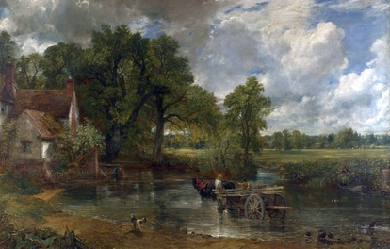
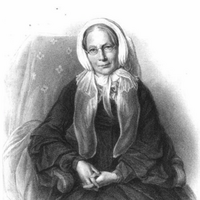
Ann Taylor (30 January 1782 – 20 December 1866) was an English poet and literary critic. In her youth she was a writer of verse for children, for which she achieved long-lasting popularity. In the years immediately preceding her marriage, she became an astringent literary critic of growing reputation. She is, however, best remembered as the elder sister and collaborator of Jane Taylor. The Taylor sisters were part of an extensive literary family, daughters of Isaac Taylor of Ongar. Ann was born in Islington and lived with her family at first in London and later in Lavenham in Suffolk, in Colchester and, briefly, in Ongar.
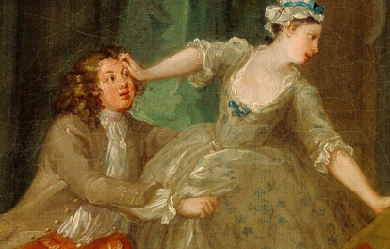
Augustus Montague Toplady (4 November 1740– 11 August 1778) was an Anglican cleric and hymn writer. He was a major Calvinist opponent of John Wesley. He is best remembered as the author of the hymn “Rock of Ages”. Three of his other hymns– “A Debtor to Mercy Alone”, “Deathless Principle, Arise” and “Object of My First Desire”– are still occasionally sung today, though all three are far less popular than “Rock of Ages”. Background and early life, 1740–55 Augustus Toplady was born in Farnham, Surrey, England in November 1740. His father, Richard Toplady, was probably from Enniscorthy, County Wexford in Ireland. Richard Toplady became a commissioned officer in the Royal Marines in 1739; by the time of his death, he had reached the rank of major. In May 1741, shortly after Augustus’ birth, Richard participated in the Battle of Cartagena de Indias (1741), the most significant battle of the War of Jenkins’ Ear (1739–42), during the course of which he died, most likely of yellow fever, leaving Augustus’ mother to raise the boy alone. Toplady’s mother, Catherine, was the daughter of Richard Bate, who was the incumbent of Chilham from 1711 until his death in 1736. Catherine and her son moved from Farnham to Westminster. He attended Westminster School from 1750 to 1755. Trinity College, Dublin: 1755–60 In 1755, Catherine and Augustus moved to Ireland, and Augustus was enrolled in Trinity College, Dublin. Shortly thereafter, in August 1755, the 15-year-old Toplady attended a sermon preached by James Morris, a follower of John Wesley, in a barn in Codymain, co. Wexford (though in his Dying Avowal, Toplady denies that the preacher was directly connected to Wesley, with whom he had developed a bitter relationship). He would remember this sermon as the time at which he received his effectual calling from God. Having undergone his religious conversion under the preaching of a Methodist, Toplady initially followed Wesley in supporting Arminianism. In 1758, however, the 18-year-old Toplady read Thomas Manton’s seventeenth-century sermon on John 17 and Jerome Zanchius’s Confession of the Christian Religion (1562). These works convinced Toplady that Calvinism, not Arminianism, was correct. In 1759, Toplady published his first book, Poems on Sacred Subjects. Following his graduation from Trinity College in 1760, Toplady and his mother returned to Westminster. There, Toplady met and was influenced by several prominent Calvinist ministers, including George Whitefield, John Gill, and William Romaine. It was John Gill who in 1760 urged Toplady to publish his translation of Zanchius’s work on predestination, Toplady commenting that “I was not then, however, sufficiently delivered from the fear of man.” Church ministry: 1762–78 In 1762, Edward Willes, the Bishop of Bath and Wells, ordained Toplady as an Anglican deacon, appointing him curate of Blagdon, located in the Mendip Hills of Somerset. Toplady wrote his famous hymn “Rock of Ages” in 1763. A local tradition– discounted by most historians– holds that he wrote the hymn after seeking shelter under a large rock at Burrington Combe, a magnificent ravine close to Blagdon, during a thunderstorm. Upon being ordained priest in 1764, Toplady returned to London briefly, and then served as curate of Farleigh Hungerford for a little over a year (1764–65). He then returned to stay with friends in London for 1765–66. In May 1766, he became incumbent of Harpford and Venn Ottery, two villages in Devon. In 1768, however, he learned that he had been named to this incumbency because it had been purchased for him; seeing this as simony, he chose to exchange the incumbency for the post of vicar of Broadhembury, another Devon village. He would serve as vicar of Broadhembury until his death, although he received leave to be absent from Broadhembury from 1775 on. Toplady never married, though he did have relationships with two women. The first was Selina Hastings, Countess of Huntingdon, the founder of the Countess of Huntingdon’s Connexion, a Calvinist Methodist series of congregations. Toplady first met Huntingdon in 1763, and preached in her chapels several times in 1775 during his absence from Broadhembury. The second was Catharine Macaulay, whom he first met in 1773, and with whom he spent a large amount of time in the years 1773–77. Animals and Natural World Toplady was a prolific essayist and letter correspondent and wrote on a wide range of topics. He was interested in the natural world and in animals. He composed a short work “Sketch of Natural History, with a few particulars on Birds, Meteors, Sagacity of Brutes, and the solar system”, wherein he set down his observations about the marvels of nature, including the behaviour of birds, and illustrations of wise actions on the part of various animals. Toplady also considered the problem of evil as it relates to the sufferings of animals in “A Short Essay on Original Sin”, and in a public debate delivered a speech on “Whether unnecessary cruelty to the brute creation is not criminal?”. In this speech he repudiated brutality towards animals and also affirmed his belief that the Scriptures point to the resurrection of animals. Toplady’s position about animal brutality and the resurrection were echoed by his contemporaries Joseph Butler, Richard Dean, Humphry Primatt and John Wesley, and throughout the nineteenth century other Christian writers such as Joseph Hamilton, George Hawkins Pember, George N. H. Peters, Joseph Seiss, and James Macauley developed the arguments in more detail in the context of the debates about animal welfare, animal rights and vivisection. Calvinist controversialist: 1769–78 Toplady’s first salvo into the world of religious controversy came in 1769 when he wrote a book in response to a situation at the University of Oxford. Six students had been expelled from St Edmund Hall because of their Calvinist views, which Thomas Nowell criticised as inconsistent with the views of the Church of England. Toplady then criticised Nowell’s position in his book The Church of England Vindicated from the Charge of Arminianism, which argued that Calvinism, not Arminianism, was the position historically held by the Church of England. 1769 also saw Toplady publish his translation of Zanchius’s Confession of the Christian Religion (1562), one of the works which had convinced Toplady to become a Calvinist in 1758. Toplady entitled his translation The Doctrine of Absolute Predestination Stated and Asserted. This work drew a vehement response from John Wesley, thus initiating a protracted pamphlet debate between Toplady and Wesley about whether the Church of England was historically Calvinist or Arminian. This debate peaked in 1774, when Toplady published his 700-page The Historic Proof of the Doctrinal Calvinism of the Church of England, a massive study which traced the doctrine of predestination from the period of the Early Church through to William Laud. The section about the Synod of Dort contained a footnote identifying five basic propositions of the Calvinist faith, arguably the first appearance in print of the summary of Calvinism known as the “five points of Calvinism”. The relationship between Toplady and Wesley that had initially been cordial, involving exchanges of letters in Toplady’s Arminian days, became increasingly bitter and reached its nadir with the “Zanchy affair”. Wesley took exception to the publication of Toplady’s translation of Zanchius’s work on predestination in 1769 and published, in turn, an abridgment of that work titled “The Doctrine of Absolute Predestination Stated and Asserted”, adding his own comment that “The sum of all is this: One in twenty (suppose) of mankind are elected; nineteen in twenty are reprobated. The elect shall be saved, do what they will; the reprobate will be damned, do what they can. Reader believe this, or be damned. Witness my hand.” Toplady viewed the abridgment and comments as a distortion of his and Zanchius’s views and was particularly enraged that the authorship of these additions were attributed to him, as though he approved of the content. Toplady published a response in the form of “A Letter to the Rev Mr John Wesley; Relative to His Pretended Abridgement of Zanchius on Predestination”. Wesley never publicly accepted any wrongdoing on his part and seemingly denied his authorship of the comments contained in his abridgement when, in his 1771 work “The Consequenses Proved” that responded to Toplady’s letter, he ascribed his additions to Toplady. Subsequently Wesley avoided direct correspondence with Toplady, famously stating in a letter of 24 June 1770 that “I do not fight with chimney-sweepers. He is too dirty a writer for me to meddle with. I should only foul my fingers. I read his title-page, and troubled myself no farther. I leave him to Mr Sellon. He cannot be in better hands.” Last years Toplady spent his last three years mainly in London, preaching regularly in a French Calvinist chapel at Orange Street (off of Haymarket), most spectacularly in 1778, when he appeared to rebut charges being made by Wesley’s followers that he had renounced Calvinism on his deathbed. Toplady died of tuberculosis on 11 August 1778. He was buried at Whitefield’s Tabernacle, Tottenham Court Road. Hymns Compared with Christ, in all beside n. 760 in The Church Hymn book 1872 (1772) Deathless spirit, now arise n. 1381 in The Church Hymn book 1872 (1776) Holy Ghost, dispel our sadness n. 80 in The Church Hymn book 1872 (1776). Modernising of John Christian Jacobi’s translation (1725) of Paul Gerhardts hymn from 1653. How happy are the souls above n. 1434 in The Church Hymn book 1872 (1776) (? A. M. Topladys text) Inspirer and hearer of prayer n. 30 in The Church Hymn book 1872 (1774) O thou, that hear’st the prayer of faith n. 642 in The Church Hymn book 1872 (1176) Praise the Lord, who reigns above n. 160 in The Church Hymn book 1872 (1759) Rock of ages, cleft for me n. 697 in The Church Hymn book 1872 (1776) Surely Christ thy griefs hath borne n. 443 in The Church Hymn book 1872 (1759) What, though my frail eye-lids refuse n. 29 in The Church Hymn book 1872 (1774) When langour and disease invade n. 1032 in The Church Hymn book 1872 (1778) Your harps, ye trembling saints n. 861 in The Church Hymn book 1872 (1772) References Wikipedia—https://en.wikipedia.org/wiki/Augustus_Toplady

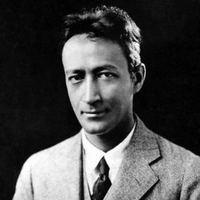
Jean Toomer (December 26, 1894– March 30, 1967) was an African American poet and novelist and an important figure of the Harlem Renaissance and modernism. His first book Cane, published in 1923, is considered by many to be his most significant. He continued to write poetry, short stories and essays. After his second marriage in 1934, he moved from New York to Doylestown, Pennsylvania, where he became a member of the Religious Society of Friends (also known as Quakers) and retired from public life. His papers are held by the Beinecke Rare Book Library at Yale University. Early life and education Nathan Pinchback Toomer was born in Washington, D.C. in 1894. His father Nathan Toomer (1839-1906) was a mixed-race freedman, born into slavery in 1839 in Chatham County, Georgia. He, his mother Kit and siblings were sold to John Toomer in Houston County; after his death, they were bought in 1859 from the estate by John’s brother Col. Henry Toomer. Among his siblings was a sister Fannie, who later married a Mr. Colomon. Nathan worked for Henry Toomer as a personal valet and assistant before and after the Civil War, learning the ways of the white upper class and later taking his surname. By 1869 Nathan Toomer had married a mulatto woman named Harriet, and they had four daughters, including Martha, who married Seymour Glover, and Theodosia, who married a Mr. Braswell. By 1870, Nathan Toomer was a farmer and the wealthiest freedman in Hancock County, with $20,000 in real estate and $10,000 in personal property. Harriet Toomer died on August 17, 1891. Nathan Toomer in 1892 married Amanda America Dickson (1849-1893). A mixed-race woman and daughter of a slave, she was raised by her white planter father, David Dickson, and grandmother Elizabeth Dickson. After his death in 1885, she inherited a 15,000-acre plantation and total estate worth $400,000 from him and was described as the “wealthiest colored woman in America.” An agricultural reformer, Dickson and his mother had educated Amanda. In 1866 she married a white paternal first cousin and had two sons by him. Unhappy in the marriage, in 1870 Amanda returned to her father’s house. Later she completed college at Atlanta University. She died in 1893 after about a year of marriage to Toomer. He and her sons struggled over her estate, but ultimately, he received almost nothing. Her father’s will had left the estate to her sons, and she died intestate. In 1893 Toomer married Nina Pinchback (1866-1909), a wealthy young woman of mixed race. She was born in New Orleans as the third child of people of color free before the Civil War. Her father P. B. S. Pinchback was of majority European heritage, from several nationalities, and also of African and Cherokee descent. He served as an officer in the Union Army; he became a Republican politician in Louisiana during the Reconstruction era and was the first African American to serve as governor of a U.S. state when he succeeded Henry C. Warmoth. He was elected to the US Congress and Senate in 1872 and 1873, respectively, but lost challenges by Democrats in Congress. Her mother Nina (Hawthorne) Pinchback was a free woman of color from Tennessee. Both Pinchback and Hawthorne had white fathers and mothers of mixed race. In 1891-1892, with white Democrats establishing Jim Crow laws in Louisiana, the Pinchbacks had moved to Washington, DC, where they were easily part of the mulatto elite. They built a new house off Fourteenth Street, in what developed as a predominantly white, upper-class area of the city. Pinchback was suspicious of the older Toomer and strongly opposed his daughter’s choice for marriage, but ultimately acquiesced. After frequent travels, the senior Nathan Toomer abandoned his wife and son Nathan after the boy was born and returned to Georgia. Nina divorced him and took back her name of Pinchback; she and her son returned to live with her parents. At that time, angered by her husband’s abandonment, her father insisted they use another name for her son and started calling him Eugene, after the boy’s godfather. The boy also was given a variety of nicknames by various family members. As a child in Washington, Jean Toomer attended segregated black schools. When his mother remarried and they moved to suburban New Rochelle, New York, he attended an all-white school. After his mother’s death in 1909, Toomer returned to Washington to live with his Pinchback grandparents. He graduated from the M Street School, a prestigious academic black high school. Between 1914 and 1917, Toomer attended six institutions of higher education (the University of Wisconsin, the Massachusetts College of Agriculture, the American College of Physical Training in Chicago, the University of Chicago, New York University, and the City College of New York) studying agriculture, fitness, biology, sociology, and history, but he never completed a degree. His wide readings among prominent contemporary poets and writers, and the lectures he attended during his college years, shaped the direction of his writing. Career After leaving college, Toomer returned to Washington, DC. He published some short stories and continued writing in the volatile social period following World War I. He worked for some months in a shipyard in 1919, then escaped to middle-class life. Labor strikes and race riots of whites attacking blacks occurred in several major industrial cities during the summer of 1919, which was known as Red Summer. People in the working class were competing after World War I for jobs and housing, and tensions erupted in violence. In Chicago and other places, blacks fought back. At the same time, it was a period of artistic ferment. Toomer devoted several months to the study of Eastern philosophies and continued to be interested in this subject [Needs citation]. Some of his early writing was political, and he published three essays from 1919-1920 in the prominent socialist paper New York Call. His work drew from the socialist and “New Negro” movements of New York. Toomer was reading much new American writing, for instance Waldo Frank’s Our America (1919). In 1919, he adopted Jean Toomer as his literary name, and it was the way he was known for most of his adult life. By his early adult years, Toomer resisted racial classifications and wanted to be identified only as an American. Accurately claiming ancestry among seven ethnic and national groups, he gained experience in both white and “colored” societies, and resisted being classified as a Negro writer, although he grudgingly allowed his publisher of Cane to use that term to increase sales. As Richard Eldridge has noted, Toomer “sought to transcend standard definitions of race. I think he never claimed that he was a white man,” Mr. Eldridge said. “He always claimed that he was a representative of a new, emergent race that was a combination of various races. He averred this virtually throughout his life.” William Andrews has noted he “was one of the first writers to move beyond the idea that any black ancestry makes you black.” In 1921 Toomer took a job for a few months as a principal at a new rural agricultural and industrial school for blacks in Sparta, Georgia. Southern schools were continuing to recruit teachers from the North, although they had also trained generations of teachers since the Civil War. The school was in the center of Hancock County and the Black Belt 100 miles southeast of Atlanta, near where his father had lived. Exploring his father’s roots in Hancock County, Toomer learned that he sometimes passed for white. Seeing the life of rural blacks, accompanied by racial segregation and virtual labor peonage in the Deep South, led Toomer to identify more strongly as an African American and with his father’s past. Several lynchings of black men took place in Georgia during 1921-1922, as whites continued to enforce white supremacy with violence. In 1908 the state had ratified a constitution that disenfranchised most blacks and many poor whites by raising requirements to voter registration. This situation was virtually maintained into the 1960s, when federal legislation was passed to enforce constitutional rights. By Toomer’s time, the state was suffering labor shortages due to thousands of rural blacks leaving in the Great Migration to the North and Midwest. Trying to control their movement, the legislature passed laws to prevent outmigration. It also established high license fees for Northern employers recruiting labor in the state. Planters feared losing their pool of cheap labor. This period was a formative experience for Toomer; he started writing about it while still in Georgia and submitted the long story “Georgia Night” to The Liberator in New York from Hancock County. Cane During Toomer’s time of being the principal of “Sparta Agricultural and Industrial Institute in Georgia, he started stories, sketches, and poems of his experience there which formed the basis for ”Cane". He attributed the success of “Cane” to his African ancestry and his immersion in the black folk culture in rural Georgia. Cane is structured in three parts. The first third of the book is devoted to the black experience in the Southern farmland. The second part of Cane is more urban and concerned with Northern life. The conclusion of the work is a prose piece entitled "Kabnis.“ People would call Toomers “Cane” a mysterious brand of Southern psychological realism that has been matched only in the best work of William Faulkner. Toomer is the first poet to unite folk culture and the elite culture of the white avant-garde. Cane was published by Boni and Liveright in 1923, “Cane” was well received by black and white critics and was reissued in 1969, two years after Toomer’s death. “Cane” was celebrated by well known African American critics and artists, including Claude McKay, Nella Larsen, Richard Wright, Langston Hughes and Wallace Thurman. Return to New York Toomer returned to New York, where he became friends with Waldo Frank. They had an intense friendship through 1923, and Frank served as his mentor and editor on his novel Cane. Afterward they had strong differences. In 1923, Toomer published the High Modernist novel Cane, in which he used a variety of forms and material inspired by his time in Georgia. It was also an “analysis of class and caste”, with “secrecy and miscegenation as major themes of the first section”. He had conceived it as a short-story cycle, he explores the tragic intersection of female sexuality, black manhood, and industrial modernization in the south (Cane Novel 1923). Toomer acknowledged the influence of Sherwood Anderson’s Winesburg, Ohio (1919) as his model, in addition to other influential works of that period. He also appeared to have absorbed The Waste Land of T. S. Eliot and considered him one of the American group of writers he wanted to join, “artists and intellectuals who were engaged in renewing American society at its multi-cultural core.” Many scholars have considered Cane to be Toomer’s best work. A series of poems and short stories about the black experience in America, Cane was hailed by critics and is seen as an important work of both the Harlem Renaissance and Modernism. But Toomer resisted racial classification and did not want to be marketed as a Negro writer. As he wrote to his publisher Horace Liveright, “My racial composition and my position in the world are realities that I alone may determine.” Toomer found it more difficult to get published throughout the 1930s and the Great Depression, as did many authors. In the 1920s, Toomer and Frank were among many Americans who were very interested in the work of the spiritual leader George Ivanovitch Gurdjieff, from the Russian Empire, who had a lecture tour in the United States in 1924. That year, and in 1926 and 1927, Toomer went to France for periods of study with Gurdjieff, who had settled at Fontainebleau. He was a student of Gurdjieff until the mid-1930s. Much of his writing from this period on was related to his spiritual quest and featured allegories. He no longer explored African-American characters. Some scholars have attributed Toomer’s artistic silence to his ambivalence about his identity in a culture based on forcing binary racial distinctions. Marriage and family In 1931 Toomer married the writer Margery Latimer in Wisconsin. During their travels on the West Coast following their marriage, it was covered in sensational terms by a Hearst reporter. An anti-miscegenation scandal broke, incorporating rumors about the commune they had organized earlier that year in Portage, Wisconsin. West Coast and Midwest press outlets were aroused and Time magazine sent a reporter to interview them. Toomer was criticized violently by some for marrying a white woman. Latimer was a respected young writer known for her first two novels and short stories. The following year she died in childbirth in August 1932; he named their only daughter Margery in her memory. In 1934 Toomer married a second time, to Marjorie Content, daughter of a wealthy Jewish stockbroker. Because Toomer was notable as a writer, this marriage also attracted notice. In 1940 the Toomers moved to Doylestown, Pennsylvania. There he formally joined the Quakers and began to withdraw from society. Toomer wrote extensively from 1935 to 1940 about relationships between the genders, influenced by his Gurdjieff studies, as well as Jungian psychology. He had fundamentally traditional views about men and women, which he put in symbolic terms. In 1939 Toomer changed his name again, using “Nathan Jean Toomer”, to emphasize that he was male. He may also have been reaching toward his paternal ancestry with it. He usually signed his name N. Jean Toomer, and continued to be called “Jean” by friends. Late writing After Cane was published Toomer began studying the guru George Gurdjieff to reach a higher level of consciousness. He had continued with his spiritual exploration, traveling to India in 1939. Later he studied the psychology developed by Carl Jung, the mystic Edgar Cayce, and the Church of Scientology but reverted to Gurdjieff’s philosophy. Toomer wrote a small amount of fiction in this later period. Mostly he published essays in Quaker publications during these years. He devoted most of his time to serving on Quaker committees for community service and working with high school students. His last literary work published during his lifetime was Blue Meridian, a long poem extolling “the potential of the American race”. He stopped writing for publication after 1950. He continued to write for himself, including several autobiographies and a poetry volume The Wayward and the Seeking. He died in 1967 after several years of poor health. Racial issues Toomer’s appearance was “racially indeterminate”. As noted above, he lived in both black and white societies as he was growing up and during his life. He did not want to be bound by race and claimed to be an American and represent a new mixed culture. Given his wide experiences, he resisted being classified as a Negro writer. But, his most enduring work was Cane, inspired by his time in the rural South and the imaginative exploration of the early world of his absent father. In preparing a new edition of that work, scholars Henry Louis Gates, Jr. and Rudolph P. Byrd said in 2010 that, based on their research, they believe that Toomer passed for white at periods in his life even though he never claimed that he was white or black, he simply was an American as far as he was concerned. They note that in the 1920 and 1930 censuses he was classified as white. (At that time, such data was provided by the census taker, often based on an individual’s appearance, economic class, area of residence, neighbors, etc.) He twice had been classified (or registered) as Negro in draft registration in 1917 and 1942. When Toomer married Marjorie Latimer, a white woman, in Wisconsin in 1931, the license noted both as white. Other scholars disagree with Gates’ and Byrd’s interpretation of this documentation, while acknowledging that Toomer tried to stretch racial boundaries. William Andrews said, “If people didn’t ask,” he said, “I expect he didn’t tell.” Legacy and archives Toomer’s papers and unpublished manuscripts are held by the Beinecke Library at Yale University. When Cane was reprinted in 1969, it was favorably reviewed as a “Black Classic”, leading to a revival of interest in Toomer’s work. Since the late 20th century, collections of Toomer’s poetry and essays have been published, and his Essentials was republished; he self-published it in 1931. It included “Gurdjieffian aphorisms”. 2002, Toomer was elected to the Georgia Hall of Fame. Books by Toomer Cane (New York: Boni and Liveright, 1923) ISBN 0-87140-151-7 Problems of Civilization, by Ellsworth Huntington, Whiting Williams, Jean Toomer and others, (New York: D. Van Nostrand Co., 1929) Essentials: Definitions and Aphorisms (Chicago: Lakeside Press, 1931) An Interpretation of Friends Worship (Philadelphia: Committee on Religious Education of Friends General Conference, 1947) The Flavor of Man (Philadelphia: Young Friends Movement of the Philadelphia Yearly Meeting, 1949) The Collected Poems of Jean Toomer (Chapel Hill: University of North Carolina Press, 1988) ISBN 0-8078-4209-5 The Letters of Jean Toomer, 1919-1924, University of Tennessee Press, 2006 References Wikipedia—https://en.wikipedia.org/wiki/Jean_Toomer
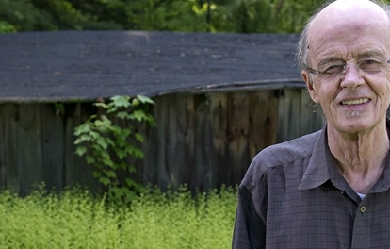
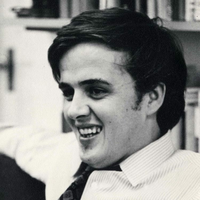
James Vincent Tate (December 8, 1943– July 8, 2015) was an American poet whose work earned him the Pulitzer Prize and the National Book Award. He was a professor of English at the University of Massachusetts Amherst and a member of the American Academy of Arts and Letters. Biography Tate was born in Kansas City, Missouri, where he lived with his mother and his grandparents in his grandparents’ house. His father, a pilot in World War II, had died in combat on April 11, 1944, before Tate was a year old. Tate and his mother moved out after seven years when she remarried. The eventual poet said he belonged to a gang in high school and had little interest in literature. He planned on being a gas station attendant as his uncle had been, but finding that his friends to his surprise were going to college, he applied to Kansas State College of Pittsburg (now Pittsburg State University) in 1961. Tate wrote his first poem a few months into college with no external motivation; he observed that poetry “became a private place that I was hugely drawn to, where I could let my daydreams—and my pain—come in completely disguised. I knew from the moment I started writing that I never wanted to be writing about my life.” In college he read Wallace Stevens and William Carlos Williams and was “in heaven”. He received his B.A. in 1965, going on to earn his M.F.A. from the University of Iowa’s famed Writer’s Workshop. During this period he was finally exposed to fellow poets and he became interested in surrealism, reading Max Jacob, Robert Desnos, and André Breton; for Benjamin Péret he expressed particular affection. Of poets writing in Spanish, César Vallejo “destroyed” him but he was not so taken by the lyricism or romanticism of Pablo Neruda or Federico García Lorca. He was married to Dara Wier. Tate died on July 8, 2015 at the age of 71. Career Tate taught creative writing at the University of California, Berkeley, Columbia University, and at the University of Massachusetts Amherst, where he worked from 1971 until his death in 2015. He was a member of the poetry faculty at the MFA Program for Poets & Writers, along with Dara Wier and Peter Gizzi. Dudley Fitts selected Tate’s first book of poems, The Lost Pilot (1967), for the Yale Series of Younger Poets while Tate was still a student at the Writers’ Workshop; Fitts praised Tate’s writing for its “natural grace.” Tate’s first volume of poetry, Cages, was published by Shepherd’s Press, Iowa City, 1966. Tate won the 1992 Pulitzer Prize and the Poetry Society of America’s William Carlos Williams Award in 1991 for his Selected Poems. In 1994, he won the National Book Award for his poetry collection Worshipful Company of Fletchers. Tate’s writing style is often described as surrealistic, comic and absurdist. His work has captivated other poets as diverse as John Ashbery and Dana Gioia. Regarding his own work, Tate said, “My characters usually are—or, I’d say most often, I don’t want to generalize too much—but most often they’re in trouble, and they’re trying to find some kind of life.” This view is supported by the poet Tony Hoagland’s observation that “his work of late has been in prose poems, in which his picaresque speaker or characters are spinning through life, inquisitive and clueless as Candide, trying to identify and get with the fiction of whatever world they are in.” In addition to many books of poetry, he published two books of prose, Dreams of a Robot Dancing Bee (2001) and The Route as Briefed (1999). Some of Tate’s additional awards included a National Institute of Arts and Letters Award, the Wallace Stevens Award, and fellowships from the Guggenheim Foundation and the National Endowment for the Arts. He was also a Chancellor of the Academy of American Poets. Published works Full-length poetry collections Dome of the Hidden Pavilion (Ecco Press, 2015) The Eternal Ones of the Dream: Selected Poems 1990-2010 (Ecco Press, 2012) The Ghost Soldiers (Ecco Press, 2008) Return to the City of White Donkeys (Ecco Press, 2004) Memoir of the Hawk (Ecco Press, 2002) Shroud of the Gnome (Ecco Press, 1997) Worshipful Company of Fletchers: Poems (Ecco Press, 1994)—winner of the National Book Award Selected Poems (Wesleyan University Press, 1991)—winner of the Pulitzer Prize and the William Carlos Williams Award Distance from Loved Ones (Wesleyan University Press, 1990) Reckoner (Wesleyan University Press, 1986) Constant Defender (Ecco Press, 1983) Riven Doggeries (Ecco Press, 1979) Viper Jazz (Wesleyan University Press, 1976) Absences: New Poems (Little, Brown & Co., 1972) Hints to Pilgrims (Halty Ferguson, 1971) The Oblivion Ha-Ha (Little, Brown & Co., 1970) The Lost Pilot (Yale University Press, 1967) Chapbooks The Zoo Club (Rain Taxi, 2011) Lost River (Sarabande Books, 2003) Police Story (Rain Taxi, 1999) Bewitched: 26 poems (Embers Handpress, Wales, illustration by Laurie Smith.) Just Shades (Parallel Editions, 1985, illustrated by John Alcorn) Land of Little Sticks (Metacom Press, 1981) Apology for Eating Geoffrey Movius’ Hyacinth (Unicorn Press, 1972) Amnesia People (Little Balkans Press, 1970) Wrong Songs (H. Ferguson, 1970) Shepherds of the Mist (Black Sparrow Press, 1969) The Torches (Unicorn Press, 1968) Prose Dreams of a Robot Dancing Bee: 44 Stories (Verse Press, 2002) The Route as Briefed (University of Michigan Press, 1999) Hottentot Ossuary (Temple Bar Bookshop, 1974) Collaborations Lucky Darryl (Release Press, 1977, a novel co-written with Bill Knott) Are You Ready, Mary Baker Eddy??? (Cloud Marauder Press, 1970, poems co-written with Bill Knott) In anthologies Tate’s work has been included in The Best American Poetry series numerous times, including in 2010, 2008, 2006, 2005, 2004, 2003, 2001, 1998, 1997, 1994, 1993, 1991, 1990, and 1988; his work was also in the The Norton Anthology of Modern and Contemporary Poetry. Honors and awards Tate was elected to the American Academy of Arts and Letters in 2004; other recognition includes: Pulitzer Prize for Poetry National Institute of Arts and Letters Award Guggenheim Fellowship National Endowment for the Arts Literature Fellowship in Poetry National Book Award for Poetry 1995 Wallace Stevens Award Yale Series of Younger Poets References Wikipedia—https://en.wikipedia.org/wiki/James_Tate_(writer)

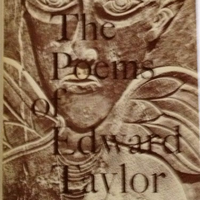
Edward Taylor (1642– June 29, 1729) was a colonial American poet, pastor and physician. Early life The son of a non-conformist yeoman farmer, Taylor was born in 1642 at Sketchley, Leicestershire, England. Following restoration of the monarchy and the Act of Uniformity under Charles II, which cost Taylor his teaching position, he immigrated in 1668 to the Massachusetts Bay Colony in America. Early days in America He chronicled his Atlantic crossing and early years in America (from April 26, 1668, to July 5, 1671) in his now-published Diary. He was admitted to Harvard College as a second year student soon after arriving in America and upon graduation in 1671 became pastor and physician at Westfield, on the remote western frontier of Massachusetts, where he remained until his death. Poetry Taylor’s poems, in leather bindings of his own manufacture, survived him, but he had left instructions that his heirs should “never publish any of his writings,” and the poems remained all but forgotten for more than 200 years. In 1937 Thomas H. Johnson discovered a 7,000-page quarto manuscript of Taylor’s poetry in the library of Yale University and published a selection from it in The New England Quarterly. The appearance of these poems, wrote Taylor’s biographer Norman S. Grabo, "established [Taylor] almost at once and without quibble as not only America’s finest colonial poet, but as one of the most striking writers in the whole range of American literature." His most important poems, the first sections of Preparatory Meditations (1682–1725) and God’s Determinations Touching His Elect and the Elects Combat in Their Conversion and Coming up to God in Christ: Together with the Comfortable Effects Thereof (c. 1680), were published shortly after their discovery. His complete poems, however, were not published until 1960. He is the only major American poet to have written in the metaphysical style. Taylor’s poems were an expression of his deeply held religious views, acquired during a strict upbringing and shaped in adulthood by New England Congregationalist Puritans, who developed during the 1630s and 1640s rules far more demanding than those of their co-religionists in England. Alarmed by a perceived lapse in piety, they concluded that professing belief and leading a scandal free life were insufficient for full participation in the local assembly. To become communing participants, “halfway members” were required to relate by testimony some personal experience of God’s saving grace leading to conversion, thus affirming that they were, in their own opinion and that of the church, assured of salvation. This requirement, expressed in the famous Halfway Covenant of 1662, was defended by such prominent churchmen as Increase and Cotton Mather and was readily embraced by Taylor, who became one of its most vocal advocates. Though not for the most part identifiably sectarian, Taylor’s poems nonetheless are marked by a robust spiritual content, characteristically conveyed by means of homely and vivid imagery derived from everyday Puritan surroundings. “Taylor transcended his frontier circumstances,” biographer Grabo observed, “not by leaving them behind, but by transforming them into intellectual, aesthetic, and spiritual universals.” Family He was twice married, first to Elizabeth Fitch, by whom he had eight children, five of whom died in childhood, and at her death to Ruth Wyllys, who bore six more children. Taylor himself died on June 29, 1729 in Westfield, Massachusetts. Works * “The Joy of Church Fellowship Rightly Attended” speaks of feelings of joyful acceptance as expressed in the singing of passengers riding in a coach on the way to heaven, accompanied by others, not yet members of the church, on foot. * In “Huswifery,” possibly his best known poem, Taylor speaks of the Christian (specifically puritanical) faith in terms of a spinning wheel and its various components, asking, in the first verse, * Make me, O Lord, thy spinning wheel complete. * Thy Holy Word my distaff make for me. * Make mine affections thy swift flyers neat * And make my soul thy holy spool to be. * My conversation make to be thy reel * And reel the yarn thereon spun of thy wheel. * “Meditation Eight” [even though this is a metaphysical poem] is centered on the concept of God’s being the living bread. * “The Preface to God’s Determination” [By personifying Calvanistic beliefs about life and death] speaks of the Creation, when God “filleted the earth so fine” and “in this Bowling Alley bowld the Sun.” * “Upon a Spider Catching a Fly” depicts Satan as a spider weaving a web to entangle man [and in doing so portrays the dance of death], who is saved by the mercy of God. Musical settings * The last stanza of Taylor’s 1685 poem Meditation. Isaiah 63.1. Glorious in his Appareil. was set as an anthem, My lovely one, from Three anthems, Op. 27, by English composer Gerald Finzi in 1946. References Wikipedia—https://en.wikipedia.org/wiki/Edward_Taylor
Everkesia Taylor is a poet, author, producer and performer of poetry. She has written and published 6 poetry books; What Happens When the Music Stops?, The Girl Who Moves Forward, I Am…, and includes a 3-book poetry series; It Is In the Room (Part One), The Elephant Speaks (Part Two), and lastly, The Elephant is Dead (Part 3). She also has poetry album out now titled, So You Can Find Me… that is available on all streaming platforms with another poetry album coming soon! To learn more about Everkesia Taylor, you can find her books, albums, and merchandise on Amazon and theorangeoutbox.com.

Alfred Charles Tomlinson, CBE (born 8 January 1927) is a British poet and translator, and also an academic and artist. He was born and raised in Penkhull in the city of Stoke-on-Trent, Staffordshire. After attending Longton High School, Tomlinson read English at Queens' College, Cambridge, where he studied with Donald Davie. After leaving university he spent a year in Liguria in Italy and then taught in a primary school. He later became Emeritus Professor of English Poetry at the University of Bristol, England. He and his wife Brenda now live in a Cotswold cottage at Ozleworth, near Wotton-under-Edge.[1] They met as teenagers, and have two daughters and a granddaughter. He is also an artist, and In Black and White: The Graphics of Charles Tomlinson, with an introduction by Nobel prize-winner Octavio Paz, was published in 1976. Poetry Tomlinson's first book of poetry was published in 1951, and his Collected Poems was published by the Oxford University Press in 1985, followed by the Selected Poems: 1955-1997 in 1997. His poetry has won international recognition and has received many prizes in Europe and the United States, including the 1993 Bennett Award from Hudson Review; the New Criterion Poetry Prize, 2002; the Premio Internazionale di Poesie Ennio Flaiano, 2001; and the Premio Internazionale di Poesia Attilio Bertolucci, 2004. He is an Honorary Fellow of the American Academy of the Arts and Sciences and of the Modern Language Association. Charles Tomlinson was made a CBE in 2001 for his contribution to literature. Charles Tomlinson's Selected Poems, his collections Skywriting, Metamorphoses and The Vineyard Above the Sea, amongst others, are all published by Carcanet Press. His latest collection Cracks in the Universe was published in May 2006 in Carcanet Press' Oxford Poets series. In his book Some Americans Tomlinson acknowledges his poetic debts to modern American poetry, in particular William Carlos Williams, George Oppen, Marianne Moore, and Louis Zukofsky. In his critical study Lives of Poets, Michael Schmidt observes that 'Wallace Stevens was the guiding star [Tomlinson] initially steered by'. Schmidt goes on to define the two characteristic voices of Tomlinson: 'one is intellectual, meditative, feeling its way through ideas' whilst the other voice engages with 'landscapes and images from the natural world'. Tomlinson's poetry often circles around these themes of place and return, exploring his native landscape of Stoke and the shifting cityscape of modern Bristol. In Against Extremity Tomlinson expresses a distrust of confessional verse and rejects the 'willed extremism of poets like Sylvia Plath and Anne Sexton'. He has been active in the field of collaborative poetry, writing renshi under the guidance of Makoto Ooka with James Lasdun and Mikiro Sasaki. From 1985 to 2000 he recorded all of his published poetry for Keele University. Included are his Stoke-on-Trent poems, which are: At Stoke; The Slag Heap; Steel; Canal; Poem for My Father; John Maydew; The Hand at Callow Hill Farm; The Farmer's Wife; Black Brook; The Question; The Shaft; After a Death; Night Ride; Gladstone Street; Etruria Vale; Penkhull New Road; The Way In; The Tree; Midlands; Portrait of the Artist I; Portrait of the Artist II; The Hoard; Consolations for Double Bass; The Rich; Class; The Hawthorn in Trent Vale; Written on Water; The Marl Pits. Translations Tomlinson has excelled as an authoritative translator of poetry from the Russian, Spanish and Italian, including the work of Antonio Machado, Fyodor Tyutchev, César Vallejo and Attilio Bertolucci. He has collaborated with the Mexican writer Octavio Paz. He edited the seminal Oxford Book of Verse in English Translation and the Selected Poems of William Carlos Williams. Works * A Peopled Landscape, Oxford University Press, 1963 * Renga: A Chain of Poems, with Octavio Paz, Jacques Roubaud, and Edoardo Sanguineti. (Braziller, 1971) * Door in the Wall (Carcanet Press, 1999) * Selected Poems (Carcanet Press, 1999) * Annunciation (Carcanet Press, 1999) * The Vineyard Above the Sea (Carcanet Press, 1999) * American Essays (Carcanet Press, 2001) * Metamorphoses: Poetry and Translation (Carcanet Press, 2003) * Skywriting (Carcanet Press, 2003) * Cracks in the Universe (Carcanet Press, 2006) References Wikipedia - http://en.wikipedia.org/wiki/Charles_Tomlinson

I think of myself as a poem. Poems and I are much similar. When i write , I draw out a picture, any picture that comes to mind. After drawing the picture i title it. Then i study the image that I have drawn. This is what brings back memories , or what we like to call it "Flash backs". My poems are a mixture of my & what i have seen. its kinda like i write peoples autobiography for them. Plus i'm sort of good at reading people. Enjoy my poems. I hope at least 1 out of 5 can relate. ~Terena.M~
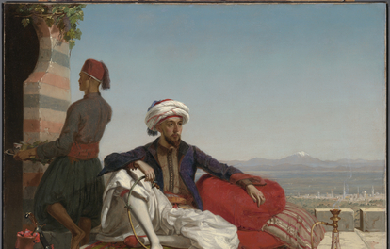
Bayard Taylor (January 11, 1825 – December 19, 1878) was an American poet, literary critic, translator, travel author, and diplomat. As a poet, he was very popular, with a crowd of more than 4,000 attending a poetry reading once, which was a record that stood for 85 years. His travelogues were popular in both the United States and Great Britain. He served in diplomatic posts in Russia and Prussia.

Hello everybody! I am Kasey Tides. I never knew that I would be doing poetry, but now I am writing poetry and poetry guides. I thought that I should've done design. But somehow there was a sign. I got up from my work, and declared to myself: " I need poems for this empty shelf!". In college I studied rhyming and words, but I stopped and got more into birds. I don't know how I ended up here, but I no longer will switch my career.
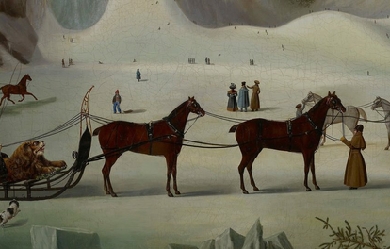
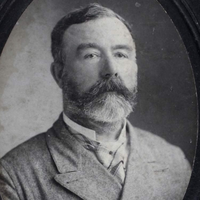
Edward William Thomson was born in Toronto township, county of Peel, Ontario, February 12th, 1849. His father was William Thomson, grandson of Archibald Thomson, the first settler in Scarboro. His grandfather Edward William Thomson, was present at the taking of Detroit, and served with distinction under Brock at Queenston Heights; and was afterwards well known in Upper Canada as Col. E. W. Thomson of the Legislative Council, and as the one successful opponent of William Lyon Mackenzie in an election for the Legislature. The mother of the present E. W. Thomson was Margaret Hamilton Foley, sister of the Hon. M. H. Foley, twice Postmaster-General of the united Canadas. The future poet was educated at the Brantford Grammar School, and at the Trinity College Grammar School at Weston; but when about fourteen years of age, he was sent to an uncle and aunt in Philadelphia and given a position in a wholesale mercantile house as 'office junior.' Finding this employment very uncongenial, he enlisted in the Union army, in October, 1864, as a trooper in the 3rd Pennsylvania Cavalry. This corps was engaged twice at Hatcher's Run, and was with Grant when he took Petersburgh. Discharged in August, 1865, he returned to the parental home at Chippewa, Ontario. In June, 1866, when the Fenians raided Upper Canada, young Thomson promptly enlisted in the Queen's Own, and was in action at the Ridgeway fight. The following year he entered the profession of Civil Engineering, and in 1872 was registered a Provincial Land Surveyor. He practised his profession until December, 1878, when at the invitation of the Hon. George Brown, he joined the staff of The Globe, Toronto, as an editorial writer. Four years later the Manitoba boom attracted him, and he practised surveying for two or three years in Winnipeg. In 1885, he rejoined The Globe staff, but retired again in 1891, because of his opposition to the Liberal policy of Unrestricted Reciprocity. Shortly afterwards he was invited to join the staff of the Youth's Companion. He accepted and remained for eleven years. Since 1903, he has lived in Ottawa, employed as a newspaper correspondent and engaged in literary work.The Many-Mansioned House and Other Poems was issued in 1909. His poems, like his short stories, are lucid, vital, original. References http://digital.library.upenn.edu/women/garvin/poets/thomson.html

Moran Ndinisa, stage name TMCrazzzy.1991 aged! Born and raised in nelspruit from a small village named GBZ in daantjie. I wrote my 1st lyrics when I was in grade 7, primary school, it never got on tape but I could always get hype's from guys around the hood, hence it was very rare. then it went quiet since I had no idea nor a plan of how to procced about. Then grade nine, I met a few cats from the school I was attending, they kinda got the fire ignited. A couple o' cyfers, then later during that very same year, a nigger I grew up with fell inlove with producing, we did a few joints which went really apealing,. But a few people listened to our crap then, grade 10, things then started shaping up, I met scoundolous, the scientist, nigger is horrible on the bit and his mixing was just on point at that time and age, produced one of my best songs even today, songs like, "lifetime in hell" and "make that killo". After matriculating, I moved to witbank, the I thought the dream of a young rapper came to a solid wall but it was the begining of great things, met my friend and current producer! Mr M.T.H, mtherro, a God fearing nigger, we went to the same church and we figured out our rap style could not fit nor accommodate the lives of young Christians, then we had to chose between music and our belief, but we chose none, we decided we gonna bring it to church, that's why even today, after being dirty, dirty for so many years, I'm doing Christian rap and its ministering.
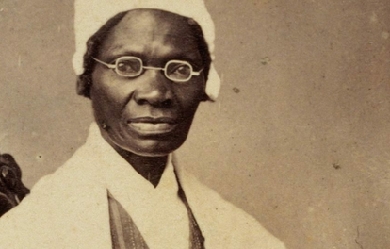
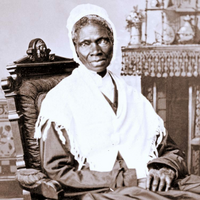
Sojourner Truth (born Isabella ("Bell") Baumfree; C. 1797– November 26, 1883) was an African-American abolitionist and women’s rights activist. Truth was born into slavery in Swartekill, Ulster County, New York, but escaped with her infant daughter to freedom in 1826. After going to court to recover her son, in 1828 she became the first black woman to win such a case against a white man. She gave herself the name Sojourner Truth in 1843 after she became convinced that God had called her to leave the city and go into the countryside “testifying the hope that was in her.” Her best-known speech was delivered extemporaneously, in 1851, at the Ohio Women’s Rights Convention in Akron, Ohio. The speech became widely known during the Civil War by the title “Ain’t I a Woman?,” a variation of the original speech re-written by someone else using a stereotypical Southern dialect; whereas Sojourner Truth was from New York and grew up speaking Dutch as her first language. During the Civil War, Truth helped recruit black troops for the Union Army; after the war, she tried unsuccessfully to secure land grants from the federal government for former slaves. In 2014, Truth was included in Smithsonian magazine’s list of the "100 Most Significant Americans of All Time". Early years Truth was one of the ten or twelve children born to James and Elizabeth Baumfree (or Bomefree). Colonel Hardenbergh bought James and Elizabeth Baumfree from slave traders and kept their family at his estate in a big hilly area called by the Dutch name Swartekill (just north of present-day Rifton), in the town of Esopus, New York, 95 miles (153 km) north of New York City. Charles Hardenbergh inherited his father’s estate and continued to enslave people as a part of that estate’s property. When Charles Hardenbergh died in 1806, nine-year-old Truth (known as Belle), was sold at an auction with a flock of sheep for $100 to John Neely, near Kingston, New York. Until that time, Truth spoke only Dutch. She later described Neely as cruel and harsh, relating how he beat her daily and once even with a bundle of rods. Neely sold her in 1808, for $105, to Martinus Schryver of Port Ewen, a tavern keeper, who owned her for eighteen months. Schryver sold her in 1810 to John Dumont of West Park, New York. Although this fourth owner was kindly disposed toward her, considerable tension existed between Truth and Dumont’s second wife, Elizabeth Waring Dumont, who harassed her and made her life more difficult. (John Dumont’s first wife, Sarah “Sally” Waring Dumont (Elizabeth’s sister), died around 1805, five years before he bought Truth.) Around 1815, Truth met and fell in love with a slave named Robert from a neighboring farm. Robert’s owner (Charles Catton, Jr., a landscape painter) forbade their relationship; he did not want the people he enslaved to have children with people he was not enslaving, because he would not own the children. One day Robert sneaked over to see Truth. When Catton and his son found him, they savagely beat Robert until Dumont finally intervened, and Truth never saw Robert again. He later died some years later, perhaps as a result of the injuries, and the experience haunted Truth throughout her life. Truth eventually married an older slave named Thomas. She bore five children: James, her firstborn, who died in childhood, Diana (1815), fathered by either Robert or John Dumont, and Peter (1821), Elizabeth (1825), and Sophia (ca. 1826), all born after she and Thomas united. Freedom The state of New York began, in 1799, to legislate the abolition of slavery, although the process of emancipating those people enslaved in New York was not complete until July 4, 1827. Dumont had promised to grant Truth her freedom a year before the state emancipation, “if she would do well and be faithful.” However, he changed his mind, claiming a hand injury had made her less productive. She was infuriated but continued working, spinning 100 pounds of wool, to satisfy her sense of obligation to him. Late in 1826, Truth escaped to freedom with her infant daughter, Sophia. She had to leave her other children behind because they were not legally freed in the emancipation order until they had served as bound servants into their twenties. She later said “I did not run off, for I thought that wicked, but I walked off, believing that to be all right.” She found her way to the home of Isaac and Maria Van Wagenen in New Paltz, who took her and her baby in. Isaac offered to buy her services for the remainder of the year (until the state’s emancipation took effect), which Dumont accepted for $20. She lived there until the New York State Emancipation Act was approved a year later. Truth learned that her son Peter, then five years old, had been sold illegally by Dumont to an owner in Alabama. With the help of the Van Wagenens, she took the issue to court and in 1828, after months of legal proceedings, she got back her son, who had been abused by those who were enslaving him. Truth became one of the first black women to go to court against a white man and win the case. Truth had a life-changing religious experience during her stay with the Van Wagenens, and became a devout Christian. In 1829 she moved with her son Peter to New York City, where she worked as a housekeeper for Elijah Pierson, a Christian Evangelist. While in New York, she befriended Mary Simpson, a grocer on John Street who claimed she had once been enslaved by George Washington. They shared an interest in charity for the poor and became intimate friends. In 1832, she met Robert Matthews, also known as Prophet Matthias, and went to work for him as a housekeeper at the Matthias Kingdom communal colony. Elijah Pierson died, and Robert Matthews and Truth were accused of stealing from and poisoning him. Both were acquitted of the murder, though Matthews was convicted of lesser crimes, served time, and moved west. In 1839, Truth’s son Peter took a job on a whaling ship called the Zone of Nantucket. From 1840 to 1841, she received three letters from him, though in his third letter he told her he had sent five. Peter said he also never received any of her letters. When the ship returned to port in 1842, Peter was not on board and Truth never heard from him again. “The Spirit Calls Me” 1843 was a turning point for Truth. She became a Methodist, and on June 1, she changed her name to Sojourner Truth. She told friends: “The Spirit calls me, and I must go” and left to make her way traveling and preaching about the abolition of slavery. At that time, Truth began attending Millerite Adventist campmeetings. However, that did not last since Jesus failed to appear in 1843 and then again in 1844. Like many others disappointed, Truth distanced herself from her Millerite friends for a while. In 1844, she joined the Northampton Association of Education and Industry in Northampton, Massachusetts. Founded by abolitionists, the organization supported women’s rights and religious tolerance as well as pacifism. There were, in its four-and-a-half year history, a total of 240 members, though no more than 120 at any one time. They lived on 470 acres (1.9 km2), raising livestock, running a sawmill, a gristmill, and a silk factory. While there, Truth met William Lloyd Garrison, Frederick Douglass, and David Ruggles. In 1846, the group disbanded, unable to support itself. In 1845, she joined the household of George Benson, the brother-in-law of William Lloyd Garrison. In 1849, she visited John Dumont before he moved west. Truth started dictating her memoirs to her friend Olive Gilbert, and in 1850 William Lloyd Garrison privately published her book, The Narrative of Sojourner Truth: A Northern Slave. That same year, she purchased a home in what would become the village of Florence in Northampton for $300, and spoke at the first National Women’s Rights Convention in Worcester, Massachusetts. In 1854, with proceeds from sales of the Narrative and cartes-de-visite entitled “I sell the shadow to support the substance,” she paid off the mortgage held by her friend from the Community, Samuel L. Hill. “Ain’t I a Woman?” In 1851, Truth joined George Thompson, an abolitionist and speaker, on a lecture tour through central and western New York State. In May, she attended the Ohio Women’s Rights Convention in Akron, Ohio, where she delivered her famous extemporaneous speech on women’s rights, later known as “Ain’t I a Woman.” Her speech demanded equal human rights for all women as well as for all blacks. The convention was organized by Hannah Tracy and Frances Dana Barker Gage, who both were present when Truth spoke. Different versions of Truth’s words have been recorded, with the first one published a month later by Marius Robinson, a newspaper owner and editor who was in the audience. Robinson’s recounting of the speech included no instance of the question “Ain’t I a Woman?” Twelve years later in May 1863, Gage published another, very different, version. In it, Truth’s speech pattern had characteristics of Southern slaves, and the speech included sentences and phrases that Robinson didn’t report. Gage’s version of the speech became the historic standard version, and is known as “Ain’t I a Woman?” because that question was repeated four times. It is highly unlikely that Truth’s own speech pattern was Southern in nature, as she was born and raised in New York, and she spoke only Dutch until she was nine years old. In contrast to Robinson’s report, Gage’s 1863 version included Truth saying her 13 children were sold away from her into slavery. Truth is widely believed to have had five children, with one sold away, and was never known to boast more children. Gage’s 1863 recollection of the convention conflicts with her own report directly after the convention: Gage wrote in 1851 that Akron in general and the press in particular were largely friendly to the woman’s rights convention, but in 1863 she wrote that the convention leaders were fearful of the “mobbish” opponents. Other eyewitness reports of Truth’s speech told a calm story, one where all faces were “beaming with joyous gladness” at the session where Truth spoke; that not “one discordant note” interrupted the harmony of the proceedings. In contemporary reports, Truth was warmly received by the convention-goers, the majority of whom were long-standing abolitionists, friendly to progressive ideas of race and civil rights. In Gage’s 1863 version, Truth was met with hisses, with voices calling to prevent her from speaking. Over the next 10 years, Truth spoke before dozens, perhaps hundreds, of audiences. From 1851 to 1853, Truth worked with Marius Robinson, the editor of the Ohio Anti-Slavery Bugle, and traveled around that state speaking. In 1853, she spoke at a suffragist “mob convention” at the Broadway Tabernacle in New York City; that year she also met Harriet Beecher Stowe. In 1856, she traveled to Battle Creek, Michigan, to speak to a group called the “Friends of Human Progress.” In 1858, someone interrupted a speech and accused her of being a man; Truth opened her blouse and revealed her breasts. Other notable speeches Northampton Camp Meeting—1844, Northampton, Massachusetts: At a camp meeting where she was participating as an itinerant preacher, a band of “wild young men” disrupted the camp meeting, refused to leave, and threatening to burn down the tents. Truth caught the sense of fear pervading the worshipers and hid behind a trunk in her tent, thinking that since she was the only black person present, the mob would attack her first. However, she reasoned with herself and resolved to do something: as the noise of the mob increased and a female preacher was “trembling on the preachers’ stand,” Truth went to a small hill and began to sing “in her most fervid manner, with all the strength of her most powerful voice, the hymn on the resurrection of Christ." Her song, “It was Early in the Morning,” gathered the rioters to her and quieted them. They urged her to sing, preach, and pray for their entertainment. After singing songs and preaching for about an hour, Truth bargained with them to leave after one final song. The mob agreed and left the camp meeting. Abolitionist Convention—1840s, Boston, Massachusetts: William Lloyd Garrison invited Sojourner Truth to give a speech at an annual antislavery convention. Wendell Phillips was supposed to speak after her, which made her nervous since he was known as such a good orator. So Truth sang a song, “I am Pleading for My people,” which was her own original composition sung to the tune of Auld Lang Syne. Mob Convention—September 7, 1853: At the convention, young men greeted her with "a perfect storm,” hissing and groaning. In response, Truth said, “You may hiss as much as you please, but women will get their rights anyway. You can’t stop us, neither”. Sojourner, like other public speakers, often adapted her speeches to how the audience was responding to her. In her speech, Sojourner speaks out for women’s rights. She incorporates religious references in her speech, particularly the story of Esther. She then goes on to say that, just as women in scripture, women today are fighting for their rights. Moreover, Sojourner scolds the crowd for all their hissing and rude behavior, reminding them that God says to “Honor thy father and thy mother.” American Equal Rights Association—May 9–10, 1867: Her speech was addressed to the American Equal Rights Association, and divided into three sessions. Sojourner was received with loud cheers instead of hisses, now that she had a better-formed reputation established. The Call had advertised her name as one of the main convention speakers. For the first part of her speech, she spoke mainly about the rights of black women. Sojourner argued that because the push for equal rights had led to black men winning new rights, now was the best time to give black women the rights they deserve too. Throughout her speech she kept stressing that “we should keep things going while things are stirring” and fears that once the fight for colored rights settles down, it would take a long time to warm people back up to the idea of colored women’s having equal rights. In the second sessions of Sojourner’s speech, she utilized a story from the Bible to help strengthen her argument for equal rights for women. She ended her argument by accusing men of being self-centered, saying, “man is so selfish that he has got women’s rights and his own too, and yet he won’t give women their rights. He keeps them all to himself.” For the final session of Sojourner’s speech, the center of her attention was mainly on women’s right to vote. Sojourner told her audience that she owned her own house, as did other women, and must therefore pay taxes. Nevertheless, they were still unable to vote because they were women. Black women who were enslaved were made to do hard manual work, such as building roads. Sojourner argues that if these women were able to perform such tasks, then they should be allowed to vote because surely voting is easier than building roads. Eighth Anniversary of Negro Freedom—New Year’s Day, 1871: On this occasion the Boston papers related that “...seldom is there an occasion of more attraction or greater general interest. Every available space of sitting and standing room was crowded". She starts off her speech by giving a little background about her own life. Sojourner recounts how her mother told her to pray to God that she may have good masters and mistresses. She goes on to retell how her masters were not good to her, about how she was whipped for not understanding English, and how she would question God why he had not made her masters be good to her. Sojourner admits to the audience that she had once hated white people, but she says once she met her final master, Jesus, she was filled with love for everyone. Once enslaved folks were emancipated, she tells the crowd she knew her prayers had been answered. That last part of Sojourner’s speech brings in her main focus. Some freed enslaved people were living on government aid at that time, paid for by taxpayers. Sojourner announces that this is not any better for those colored people than it is for the members of her audience. She then proposes that black people are given their own land. Because a portion of the South’s population contained rebels that were unhappy with the abolishment of slavery, that region of the United States was not well suited for colored people. She goes on to suggest that colored people be given land out west to build homes and prosper on. On a mission In 1856, Truth bought a neighboring lot in Northampton, but she did not keep the new property for long. On September 3, 1857, she sold all her possessions, new and old, to Daniel Ives and moved to Battle Creek, Michigan, where she rejoined former members of the Millerite Movement who had formed the Seventh-day Adventist Church. Antislavery movements had begun early in Michigan and Ohio. Here, she also joined the nucleus of the Michigan abolitionists, the Progressive Friends, some who she had already met at national conventions. According to the 1860 census, her household in Harmonia included her daughter, Elizabeth Banks (age 35), and her grandsons James Caldwell (misspelled as “Colvin”; age 16) and Sammy Banks (age 8). During the Civil War, Truth helped recruit black troops for the Union Army. Her grandson, James Caldwell, enlisted in the 54th Massachusetts Regiment. In 1864, Truth was employed by the National Freedman’s Relief Association in Washington, D.C., where she worked diligently to improve conditions for African-Americans. In October of that year, she met President Abraham Lincoln. In 1865, while working at the Freedman’s Hospital in Washington, Truth rode in the streetcars to help force their desegregation. Truth is credited with writing a song, “The Valiant Soldiers”, for the 1st Michigan Colored Regiment; it was said to be composed during the war and sung by her in Detroit and Washington, D.C. It is sung to the tune of “John Brown’s Body” or “The Battle Hymn of the Republic”. Although Truth claimed to have written the words, it has been disputed (see “Marching Song of the First Arkansas”). In 1867, Truth moved from Harmonia to Battle Creek. In 1868, she traveled to western New York and visited with Amy Post, and continued traveling all over the East Coast. At a speaking engagement in Florence, Massachusetts, after she had just returned from a very tiring trip, when Truth was called upon to speak she stood up and said “Children, I have come here like the rest of you, to hear what I have to say.” In 1870, Truth tried to secure land grants from the federal government to former enslaved people, a project she pursued for seven years without success. While in Washington, D.C., she had a meeting with President Ulysses S. Grant in the White House. In 1872, she returned to Battle Creek and tried to vote in the presidential election, but was turned away at the polling place. Truth spoke about abolition, women’s rights, prison reform, and preached to the Michigan Legislature against capital punishment. Not everyone welcomed her preaching and lectures, but she had many friends and staunch support among many influential people at the time, including Amy Post, Parker Pillsbury, Frances Gage, Wendell Phillips, William Lloyd Garrison, Laura Smith Haviland, Lucretia Mott, Ellen G. White, and Susan B. Anthony.” Death and legacy Several days before Sojourner Truth died, a reporter came from the Grand Rapids Eagle to interview her. “Her face was drawn and emaciated and she was apparently suffering great pain. Her eyes were very bright and mind alert although it was difficult for her to talk.” Truth died at her Battle Creek home on November 26, 1883. On November 28 her funeral was held at the Congregational-Presbyterian Church officiated by its pastor, the Reverend Reed Stuart. Some of the prominent citizens of Battle Creek acted as pall-bearers. Truth was buried in the city’s Oak Hill Cemetery. The calendar of saints of the Episcopal Church remembers Sojourner Truth annually, together with Elizabeth Cady Stanton, Amelia Bloomer and Harriet Ross Tubman on July 20. The calendar of saints of the Lutheran Church remembers Sojourner Truth together with Harriet Tubman on March 10. A larger-than-life sculpture of Sojourner Truth by artist Tina Allen, was dedicated in 1999, which is the estimated bicentennial of Sojourner’s birth. The 12-foot tall Sojourner monument is cast bronze. Cultural references and commemorations Other honors and commemorations include (by year): 1862– William Wetmore Story’s statue, The Libyan Sibyl, inspired by Sojourner Truth, won an award at the London World Exhibition. 1892– Albion artist Frank Courter is commissioned to paint the meeting between Truth and President Abraham Lincoln. 1969– The leftist group the Sojourner Truth Organization is named after her. The group folded in 1985. 1971– Sojourner Truth Library at New Paltz State University of New York is named in Truth’s honor. 1976– Interstate 194 is named for her in Michigan. 1979– The artwork The Dinner Party features a place setting for Truth. 1980– The Inter Cooperative Council at the University of Michigan and the residents of the then Lenny Bruce House rename it as Sojourner Truth House in her honor. 1981– Truth is inducted into the National Women’s Hall of Fame in Seneca Falls, New York. 1981– Feminist theorist and author bell hooks titles her first major work after Truth’s “Ain’t I a Woman?” speech. 1983– Truth is in the first group of women inducted into the Michigan Women’s Hall of Fame in Lansing. 1986– The U.S. Postal Service issues a commemorative postage stamp honoring Sojourner Truth. 1987– Truth is commemorated in a monument of “Michigan Legal Milestones” erected by the State Bar of Michigan. 1997– The NASA Mars Pathfinder mission’s robotic rover is named “Sojourner” after her. 1998– S.T. Writes Home appears on the web offering “Letters to Mom from Sojourner Truth,” in which the Mars Pathfinder Rover at times echoes its namesake. 1999– A 12-foot-high monument is built to honor her in Battle Creek, Michigan. 1999– The Broadway musical The Civil War includes an abridged version of Truth’s “Ain’t I a Woman?” speech as a spoken-word segment. On the 1999 cast recording, the track was performed by Maya Angelou. 2002– Scholar Molefi Kete Asante lists Sojourner Truth on his list of 100 Greatest African Americans. 2002– A statue was installed in Florence Massachusetts to honor Sojourner Truth in a small park located on Pine Street and Park Street, on which she lived for ten years. 2004– The King’s College, located inside the Empire State Building in New York City, names one of their houses “The House of Sojourner Truth”. 2009– Truth becomes the first black woman honored with a bust in the U.S. Capitol. The bust was sculpted by noted artist Artis Lane. It is in Emancipation Hall of the Capitol Visitor Center. v2014– Truth was included in the Smithsonian Institution’s list of the "100 Most Significant Americans". 2014– Asteroid (249521) Truth is named in her honor. 2015– A statue of Sojourner Truth is unveiled at the University of California, San Diego. The statue resides in Marshall College. As of March 2015, K-12 schools in several states, including California, Minnesota, New Jersey, New York and Oregon, are named after her, as is Sojourner–Douglass College in Baltimore. Ten-dollar bill On April 20, 2016 Treasury Secretary Jacob Lew announced that several denominations of United States currency would be redesigned prior to 2020, the 100th anniversary of the 19th Amendment. The newly designed $10 bill will include images on the reverse which will pay homage to the women’s suffrage movement and feature the images of Truth, Lucretia Mott, Susan B. Anthony, Elizabeth Cady Stanton, Alice Paul, and the 1913 Woman Suffrage Procession.

I'm a mother of two and nanny to a beautiful little princess called Gracie mae I've been married for almost 25 years. I used to write funny poetry years ago but didn't really have much interest in it, my mum passed away in 2012 and losing her inspired me to write again, I managed to capture a roller coaster of emotion from my family during the first of everything, something I'm very proud to have done as it has helped us with the grieving process. I write funny poems too which helps to lift us when we're feeling down!! When you lose someone you love so much it puts life in to perspective and changes you so much, now I see people and situations in a different light and friends I thought I had for life, sadly have not been friends. Never mind hey ho it's their loss!!!!
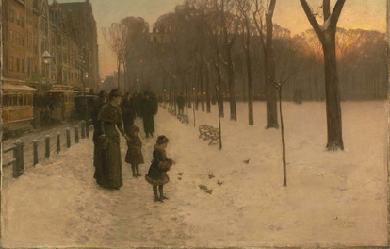
Ernest Lawrence Thayer (August 14, 1863 – August 21, 1940) was an American writer and poet who wrote the poem "Casey" (or "Casey at the Bat"), which is "the single most famous baseball poem ever written" according to the Baseball Almanac, and "the nation’s best-known piece of comic verse—a ballad that began a native legend as colorful and permanent as that of Johnny Appleseed or Paul Bunyan"
#Americans #XIXCentury #XXCentury

Hi my name is Laura Ashley I am a young writer of only 16 years old. Poetry has always been a huge inspiration to me since I was only 5 when I discovered how to write poems. My poems are based on realistic things that have happened in my life although I do write some poems based on other things. I am hoping one day to be a famous poet although deep down I know I will not be. Thank you for taking your time to read my poems if you have.


